Natural Ingredients
We always provide you with the highest degree of pure, quality sourced of natural and organic materials
The açaí palm, scientifically known as Euterpe oleracea, is a species native to the Amazon rainforest and is known for its small, purple berries. While açaí is commonly consumed as a superfood due to its high antioxidant content and potential health benefits when consumed orally, it also has some potential benefits when used in skincare products. Here are a few potential benefits of açaí palm in skincare:
1. Antioxidant Protection: Açaí berries are rich in antioxidants, such as vitamins A, C, and E, as well as anthocyanins. These antioxidants help protect the skin from free radical damage caused by environmental stressors, such as pollution and UV radiation.
2. Anti-Aging Properties: The antioxidants present in açaí palm can also help combat the signs of aging. They can help reduce the appearance of fine lines, wrinkles, and age spots, promoting a more youthful complexion.
3. Moisturizing and Nourishing: Açaí palm extract is often used in skincare products for its moisturizing and nourishing properties. It can help hydrate the skin, improve its texture, and enhance overall skin health.
4. Anti-Inflammatory Effects: Açaí palm has anti-inflammatory properties that can help calm and soothe irritated skin. It may be beneficial for those with sensitive or inflamed skin conditions like eczema or rosacea.
5. Skin Brightening: The natural compounds found in açaí berries, such as anthocyanins, can help brighten the skin and even out the complexion. This can be particularly beneficial for those dealing with dull or uneven skin tone.
When incorporating açaí palm into your skincare routine, it is important to use products that contain high-quality, pure extracts. It is also recommended to patch test new products to ensure that you do not have any adverse reactions. As always, consulting with a dermatologist or skincare professional can provide personalized advice and guidance based on your specific skin needs.
Algae extract is derived from various species of algae, which are aquatic plants that grow in both freshwater and marine environments. Algae extract is commonly used in skincare products for its numerous benefits for the skin. Here are some potential benefits of algae extract in skincare:
1. Hydration and Moisturization: Algae extract has excellent hydrating properties, making it beneficial for dry and dehydrated skin. It helps to replenish the skin's moisture barrier and improve its ability to retain moisture, resulting in softer and more supple skin.
2. Antioxidant Protection: Algae extract is rich in antioxidants, such as vitamins A, C, and E, as well as various minerals. These antioxidants help protect the skin from free radicals, which can cause premature aging and damage to the skin cells.
3. Anti-Aging Effects: Algae extract contains peptides and amino acids that can help stimulate collagen production, improve skin elasticity, and reduce the appearance of fine lines and wrinkles. It also helps to firm and tone the skin, promoting a more youthful appearance.
4. Soothing and Calming: Algae extract has soothing and calming properties, making it beneficial for sensitive and irritated skin. It can help reduce redness, inflammation, and irritation, providing relief to the skin.
5. Detoxification: Algae extract contains detoxifying properties that help to eliminate toxins and impurities from the skin. It can help purify and cleanse the skin, leaving it refreshed and revitalized.
6. Nourishment and Mineral Replenishment: Algae extract is rich in essential minerals like calcium, magnesium, and potassium, which are beneficial for the overall health of the skin. These minerals help nourish the skin, improve its vitality, and promote a healthy complexion.
Algae extract is commonly found in various skincare products, including cleansers, masks, moisturizers, and serums. It is suitable for most skin types, but as with any new skincare ingredient, it is recommended to do a patch test before using it extensively. If you have any specific skin concerns or conditions, it's always best to consult with a dermatologist or skincare professional for personalized advice.
Aloe vera is a succulent plant that has been used for centuries for its medicinal properties. It has thick, fleshy leaves that contain a gel-like substance, which is commonly used in various skincare and health products. Aloe vera gel is known for its soothing and cooling properties, making it a popular ingredient in moisturizers, lotions, and sunburn treatments. It is also rich in vitamins, minerals, and antioxidants that help nourish and hydrate the skin. Aloe vera is believed to have anti-inflammatory and antimicrobial properties, which can help alleviate skin irritation, promote wound healing, and reduce acne. Additionally, aloe vera is often used in natural remedies for digestive issues and can be consumed as a juice or supplement for its potential health benefits.
In skincare, certain amino acids play key roles due to their skin benefits.
Essential amino acids, which the body cannot produce. Nonessential amino acids are produced by our body.
Natural chemicals, components of proteins, cell structure and function.
Ours containing the 20 amino acids found in eukaryotic proteins, formulated to ensure optimal nutrition of keratinocytes. This mix provides all amino acids optimal concentrations, which is different for each amino acid. Contains all the essential and non-essential amino acids that aging skin needs.
L-Glutamine, L-Arginine, L-Leucine, L-Serine, L-Cysteine, L-Valine, L-Proline, L-Lysine, Glycine, L-Asparagine, L-Glutamic Acid, L-Threonine, L-Alanine, L-Phenylalanine, L-Methionine, L-Aspartic Acid, L-Tyrosine, L-Tryptophan, L-Histidine, L-Isoleucine
In bold: essential amino acids

Argan Oil, derived from the kernels of the organ tree, Is renowned for its beneficial properties in skincare.
Rich in fatty acids, antioxidants, and vitamin E, argan oil Moisturizes and nourishes the skin. It may help improve skin elasticity, reduce inflammation, and protect against free radicals.
As for fatty acid composition, argan oil will supply essential fatty acids to the skin. It contains about 43% oleic acid, 37% linolenic, with the rest being palmitic, stearic (and a hint of linolenic) acids. Then there are the “extras”: sterols, tocopherols, carotenes. And some phenols like oleuropein and catecols. These extras include phospholipids and help prevent oxidation (rancidity) of this oil. An extra bonus: much of the argan oil produced today is made by a number of women's co-operatives.

Avocados and avocado oil have gained popularity in the skincare industry due to their numerous benefits for the skin. Avocados are rich in vitamins, mineral, and antioxidants that nourish and hydrate the skin.
Avocado oil is extracted from the fruit of the avocado and is known for its moisturizing and emollient properties. It is easily absorbed by the skin and can help hydrate and nourish the skin. It contains fatty acids, rich in antioxidant such as vitamins e and C. These antioxidants can help reduce the signs of aging. Beta-carotene, and Lutein a carotenoid antioxidant UV rays and help reduce the risk of skin damage caused by sun expoThese vitamins and antioxidants work together to nourish, protect and rejuvenate the skin when avocado oil is used in skincare products.
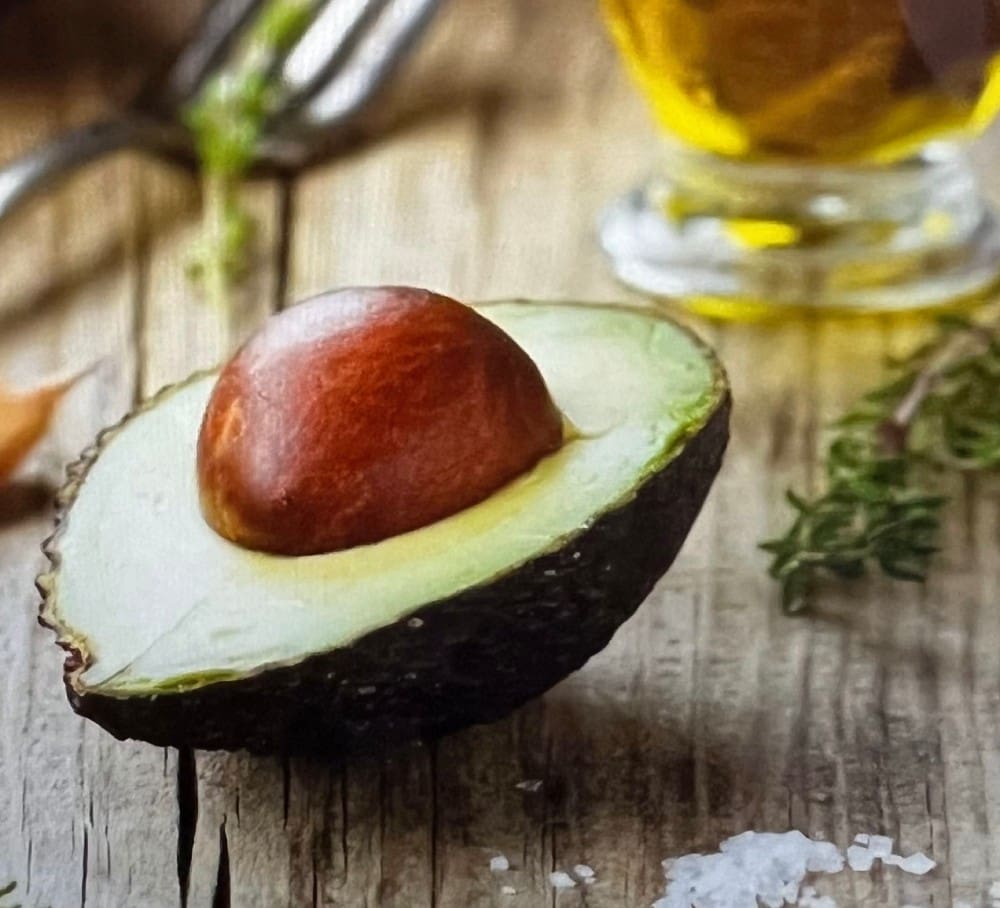
Bamboo charcoal is a type of activated charcoal derived from bamboo plants. It is produced by heating bamboo at high temperatures and the activating it with steam.
Firstly, it is highly absorbent, which allows it to dry out impurities, toxins, and excess oil from the skin. Additionally, it has natural antibacterial properties, which can help reduce bacteria on the skin and prevent breakouts. It also has a gentle exfoliating effect, helping remove dead skin cells and unclog pores.
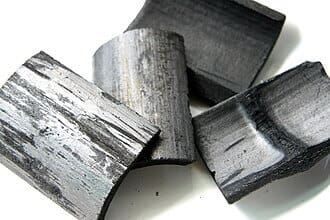
Baobab seed oil is a natural oil extracted from the seed of the baobab tree (Adansonia genus). The baobab tree is native to Africa and has been used for centuries for its various health and beauty benefits. Baobab seed oil is rich in vitamins A, B1,B2, B3. B6, C, D, and E, as well as essential fatty acids, antioxidants, and other nutrients. It is known for its moisturizing, nourishing and rejuvenation properties, making it a popular ingredient in skincare and hair care products. Baobab seed oil is often used to hydrate and soften the skin, reduce the appearance of wrinkles and fine lines.
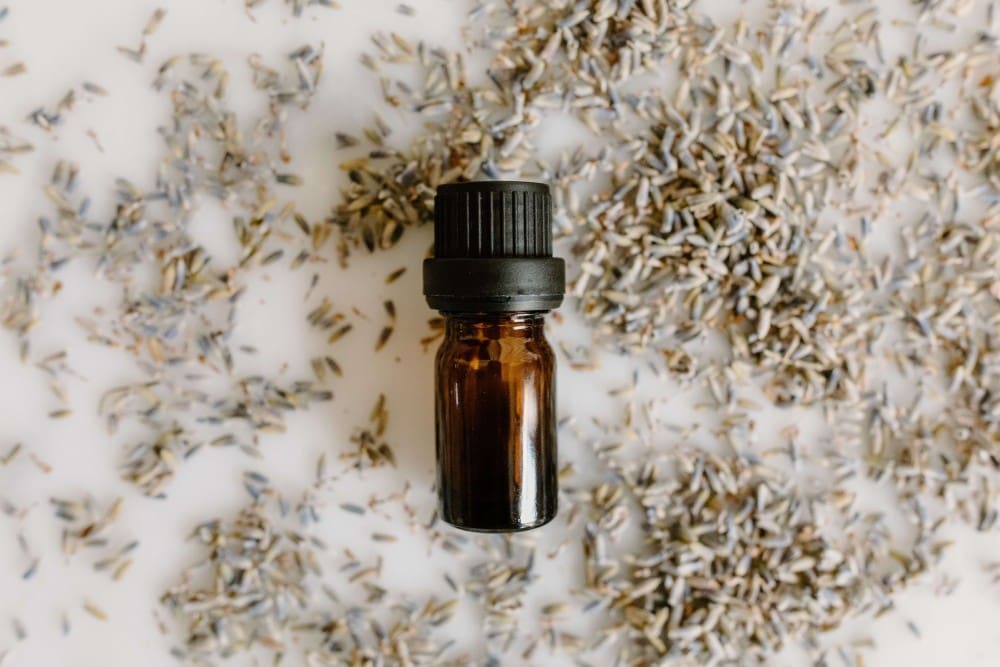
Bearberry, also known as Arctostaphylos uva-ursi, is a plant that is commonly used in skincare products for its potential benefits. The extract derived from bearberry leaves contains a compound called arbutin, which is known for its skin-lightening and brightening properties.
Here are some ways bearberry is used in skincare:
1. Skin Lightening: Bearberry extract, specifically arbutin, has been shown to inhibit the enzyme responsible for melanin production in the skin. This can help reduce the appearance of dark spots, hyperpigmentation, and uneven skin tone.
2. Anti-Aging: Bearberry extract is rich in antioxidants, which help protect the skin from free radical damage caused by environmental factors. This can help prevent premature aging and reduce the appearance of fine lines and wrinkles.
3. Anti-Inflammatory: Bearberry extract has anti-inflammatory properties that can help soothe and calm irritated skin. It may be beneficial for those with sensitive or acne-prone skin.
4. Skin Brightening: Bearberry extract can help brighten dull skin by promoting a more even and radiant complexion.
5. UV Protection: Some studies suggest that bearberry extract may have a mild sun-protective effect, helping to prevent damage caused by UV radiation.
Bearberry extract can be found in various skincare products such as serums, creams, and masks. However, it is important to note that individual results may vary, and it is always recommended to do a patch test before using any new skincare product.
This is a non-exhaustive indicative list of typical natural presence for Benzyl alcohol and is intended to be used in the absence of own analytical data. If analysis has shown that the level of the restricted ingredient in a natural complex substance is different from what is provided in this Annex I, then the analytically determined level should be used in place of the indicative level.
It should further be noted that natural complex substances themselves can be restricted by an IFRA Standard.
For a detailed list of natural contributions, please refer to the Annex I of IFRA Standards, publicly available on the IFRA website (www.ifrafragrance.org).
*Benzyl alcohol is not and isolated ingredient we add to our formulas, rather it is a naturally occurring non-synthetic com
This natural chemical is an unsaturated monocyclic sesquiterpene alcohol, partly responsible for the anti-inflammatory effect of chamomile essential oil.
Bisabolol will not lead to sensitization or allergic reactions. Useful in the treatment of acne, may also help with rosacea. Bisabolol is well absorbed and also facilitates the absorption of other ingredients. When applied to skin that has been damaged by laser treatment, bisabolol increased skin hydration, surface lipids, skin elasticity and decreased TEWL (trans-epidermal water loss, i.e. increased the integrity of the skin barrier). The anti-inflammatory effect of bisabolol is comparable to corticosteroid compounds, with the clear advantage that it lacks the side effects of corticosteroids like hydrocortisone or dexamethasone.

Blue algae, also known as blue-green algae or cyanobacteria, has gained popularity in skincare due to its potential benefits for the skin. This type of algae is rich in essential nutrients, antioxidants, and peptides, which can help improve the overall health and appearance of the skin.
Blue algae has moisturizing properties that can help hydrate the skin and improve its elasticity. It also contains amino acids that can support collagen production, promoting a more youthful and firm complexion. Additionally, blue algae is known for its antioxidant activity, which can help protect the skin against free radicals and environmental damage.
Furthermore, blue algae has anti-inflammatory properties that can help soothe and calm irritated skin. It may also help reduce redness and inflammation associated with conditions like acne and rosacea.
In skincare products, blue algae is often used in the form of extracts, oils, or powders. It can be found in various products such as moisturizers, serums, masks, and creams..
As with any skincare ingredient, it is advisable to patch test new products containing blue algae before applying them to your entire face.
Blue Tansy Essential oil is extracted from the Tanacetum Annuum plant. Blue Tansy oil is known for its vibrant blue color and is valued in skincare for its anti-inflammatory and calming properties. It contains chamazulene, which contributes to its blue hue and provides skin-soothing benefits.
In skincare, Blue Tansy oil is often used to address issues like redness, irritation, and inflammation.

BORAGE SEED OIL (BORAGO OFFICINALIS)
Borage seed oil is a natural oil derived from the seeds of the borage plant, also now as starflower. It is highly regarded for it beneficial properties in skincare products. Boorage seed oil is rich in essential fatty acids, particularly gamma linolenic acid (GLA), which is an omega-6 fatty acid.
When used in skincare product, it helps to moisturize and nourish the skin. The fatty acids in this oil help to strengthen the skin’s natural moisture barrier. It has anti-inflammatory properties, which can help calm and soothe irritated of inflamed skin. It has been known to be effective in reducing redness, itching, and dryness associated with conditions like eczema and dermatitis.

Furthermore, borage seed oil is believed to have anti-aging properties. The GLA in the oil helps to promote healthy skin cell regeneration and improve the overall texture and appearance of the skin. It helps reduce the appearance of fine lines and wrinkles, giving the skin a more youthful and radiant look.
Cacao is exceptionally high in antioxidants, raw cacao protects the skin against free radicals, which damages collagen and elastin while promoting and renewing skin cell tissue. Cacao contains omega 6 fatty acids and raw enzymes, both of which help in cellular repair and rejuvenation. Topical use increases blood flow to the skin, reducing inflammation and redness, slowing the visible aging process, and supporting healthy moisture contents.
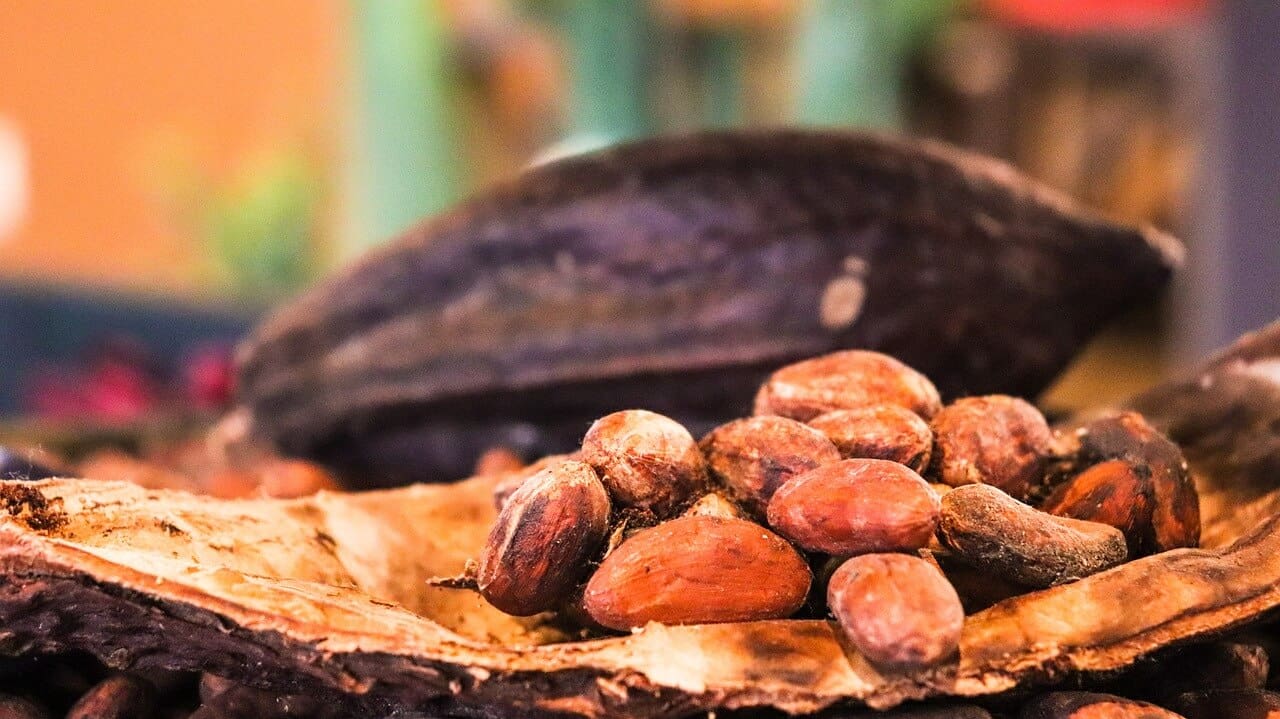
Calendula oil is a botanical oil extracted from the flowers of Calendula plant (Calendula officials), also known as marigold. The extraction is typically done through a process called maceration, where the flower petals are steeped in a carrier oil, like olive oil or sunflower oil. This allows the oil to absorb the beneficial compounds present in the calendula flower.
Calendula oil is known for its soothing and healing properties. It contains various compounds, including flavonoid, carotenoids, and essential oils, which contribute to its anti-inflammatory and antioxidants effects. This oil is commonly used in skincare for its ability to calm irritated skin and promote healing and provides moisture to the skin.
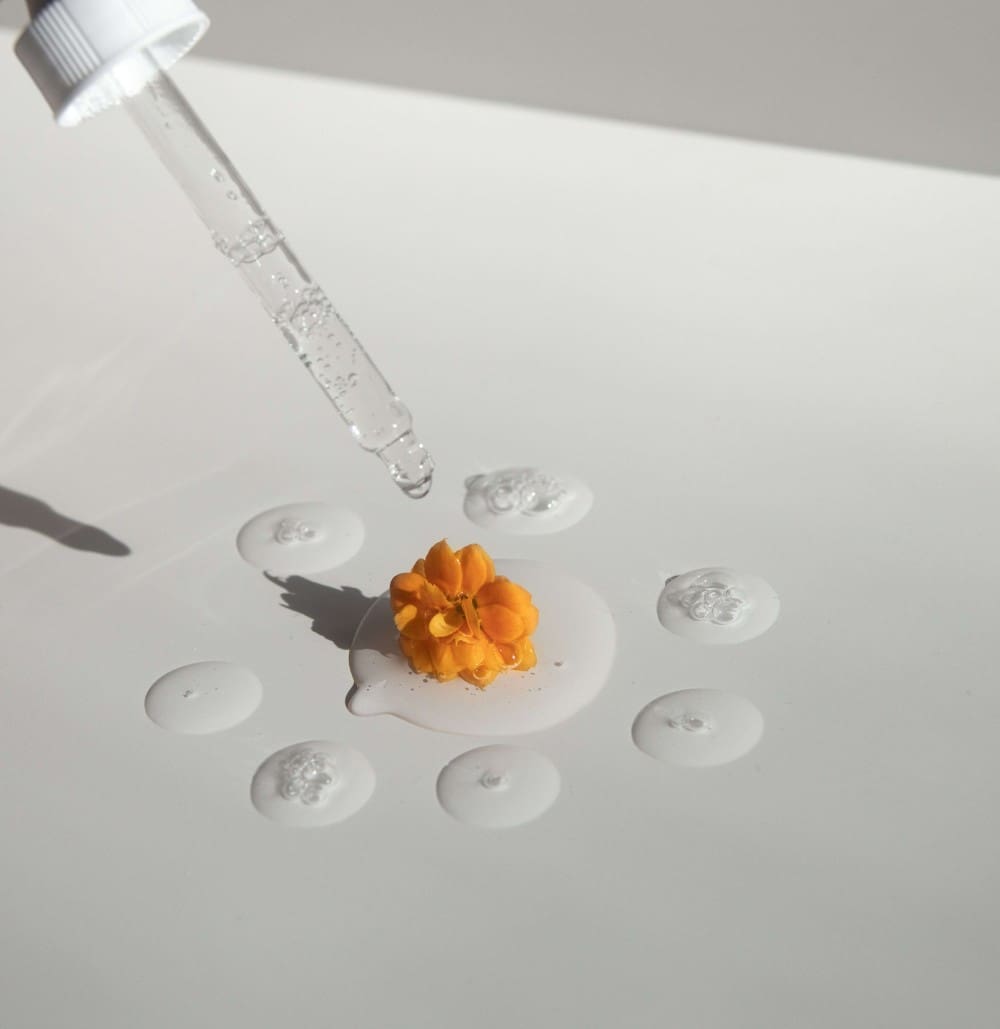
Camellia flower oil, also known as tea seed oil, is a versatile and nourishing oil extracted from the seeds of Camellia flowers. It is widely used in skincare due to its numerous benefits. The oil is packed with antioxidants, such as vitamin E, which help to combat free radicals and reduce the signs of aging. It helps to improve the elasticity of the skin, reduce the appearance of wrinkles, and promote a youthful complexion. It a great moisturizer because it rich in fatty acids, particularly oleic acid, which helps it forms a protective barrier on the skin, preventing moisture loss and keeping the skin hydrated. Camellia flower oil is has a lightweight texture and is non-comedogenic, meaning it does not clog pores. This makes it suitable for all skin types, including oily and acne-prone skin. It absorbs quickly into the skin without leaving a greasy residue.

Carnauba wax is a natural wax derived from the leaves of the Brazilian palm tree (Copernicia Pruifera). Also known as the “queen of waxes,” carnauba wax is valued for its hardness, high melting point, and glossy finish.
In skincare and cosmetic products, carnauba wax is often used as a thickening agent, emollient, or to provide a glossy finish. Due to its natural origin, carnauba wax is considered a vegan alternative to beeswax.

Carrot seed oil is an essential oil extracted from the seeds of the caucus carrot plant, commonly known as wild carrot or Queen Anne’s lace. The oil is distinct from carrot oil, which is extracted from the orange roots of the carrot plant.
Carrot seed oil has a worm, earthy, and slightly sweet aroma. It is valued in skincare for its potential benefits, including antioxidant properties due to the presence of carotenoids and vitamin E. The oil is often used to nourish and rejuvenate the skin, providing hydration and promoting a more youthful appearance. Carrot seed oil is typically used in small amounts within the skincare formulations.

Pressed from castor seeds found in the Ricinus Communes plant. Castor oil’s is used in medicine, prized for its ability to support skin conditions like eczema and psoriasis. Its incredible healing power comes from its unique chemical makeup, as it mainly consist of fatty acid known as ricioleic acid. This acid, which makes cup about 90% of the oil, is an exceedingly rare compound. A powerful humectant, it helps to balance water loss and boost moisture retention for skin that is soft, plumped, and thoroughly hydrated. Ricinoleic acid is also antibacterial, anti-inflammatory, anti fungal, and loaded with protective antioxidants.

Castor Seed Oil
As its name implies, castor seed oil (or just castor oil) is an extract from the seeds of the castor plant. The uses for the oil of these seeds go back millennia. There is evidence of it being used as a lamp oil in ancient Egypt, and medicinally in regions from the Mediterranean, to Africa, to India.
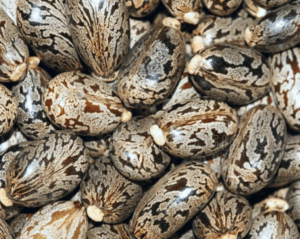
In the skincare trade, Castor Seed Oil is often used in treatments for skin conditions like eczema and psoriasis. Its Ricinoleic acid is an antibacterial, anti-inflammatory, antifungal, and contains powerful antioxidants. This oil, consisting mainly of a fatty acid, has well substantiated healing abilities. Moreover, it acts as a effective moisture preserve, balancing water loss and moisture retention. The result is rejuvenated skin that is soft and hydrated.

Castor oil is a multipurpose vegetable oil that people have used for thousands of years. It’s made by extracting oil from the seeds of the Ricinus communis plant.
These seeds, which are known as castor beans, contain a toxic enzyme called ricin. However, the heating process that castor oil undergoes during production deactivates the ricin, allowing the oil to be used safely.
Castor oil has a number of medicinal, industrial, and pharmaceutical uses. It’s commonly used as an additive in foods, medications, and skin care products, as well as an industrial lubricant and biodiesel fuel component.
In ancient Egypt, people burned castor oil as fuel in lamps, used it as a natural remedy to treat ailments like eye irritation, and even took it to stimulate labor in pregnancy (1Trusted Source).
Here are 4 potential benefits and uses of castor oil. We also cover its use as a hair treatment and precautions to consider.
Cayenne pepper is a spice commonly used in cooking, but it also has potential benefits for skincare. Its active component, capsaicin, has antioxidant and anti-inflammatory properties. When applied topically, cayenne pepper may help to stimulate blood circulation, improve complexion, and reduce the appearance of blemishes or acne. However, it is important to use cayenne pepper with caution as it can be irritating to the skin. It is recommended to do a patch test.

Cedarwood is a beneficial ingredient in skincare due to its antiseptic, anti-inflammatory, and astringent properties. It helps balance oil production, soothes the skin, and offers antioxidant protection. Its relaxing aroma is also popular in aromatherapy products.
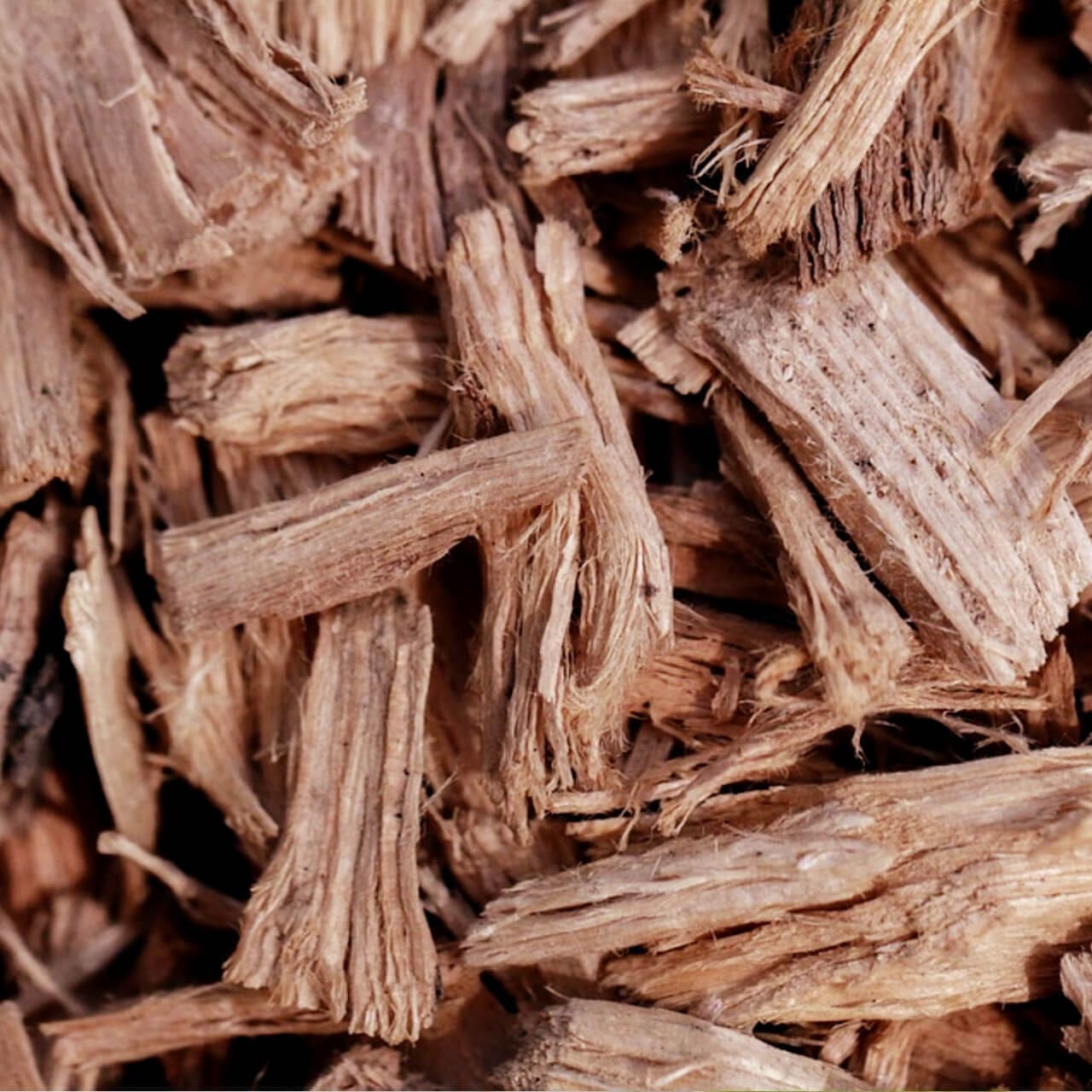
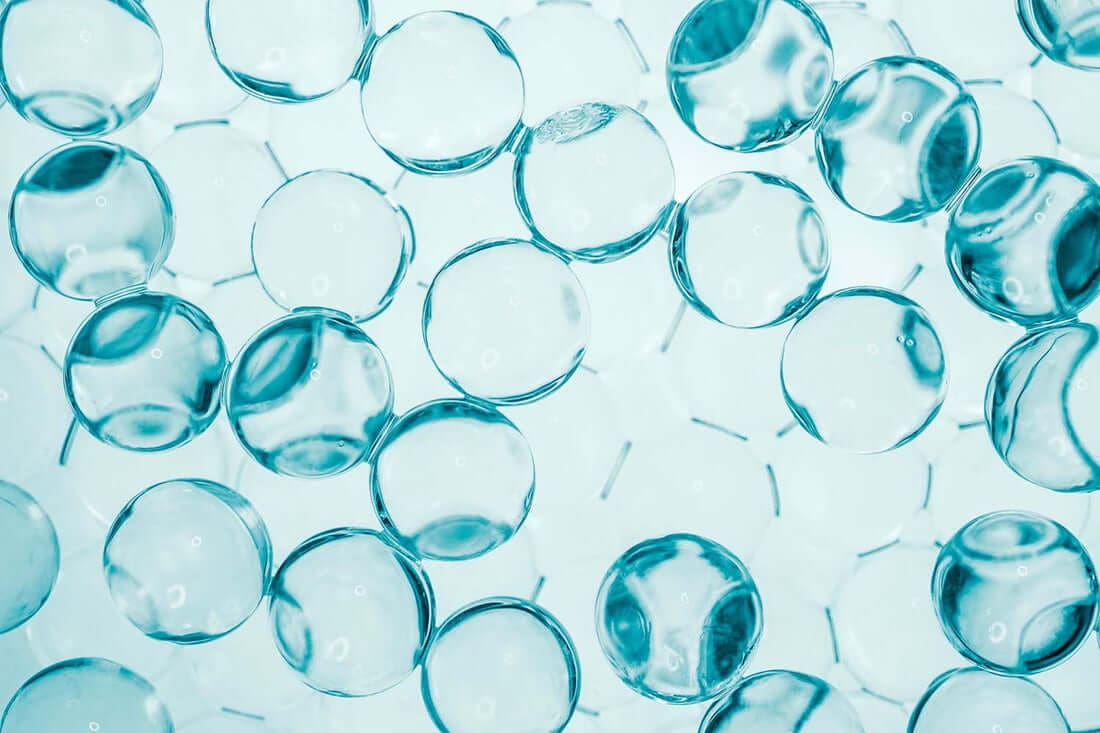
Chamomile Flower oil (Anthemis Nobilis Flower oil), is derived from the flower of the chamomile plant. It is widely recognized for its soothing and calming properties, making it a popular ingredient in skincare.
Chamomile oil is known for its anti-inflammatory and antioxidant properties, which can help soothe irritated skin and reduce redness. It is often used in skincare formulations for sensitive or acne-prone skin to help calm and balance the complexion.

Charcoal has gained popularity in skincare due to its ability to draw out impurities and toxins from the skin. It is known for its detoxifying and purifying properties, making it effective in treating acne and oily skin. Charcoal can absorb excess oil, dirt, and bacteria from the pores, helping to unclog them and reduce the occurrence of breakouts. It can also exfoliate dead skin cells, leaving the skin smoother and more radiant. Additionally, charcoal can help minimize the appearance of pores and improve overall skin texture. However, it's important to use charcoal-based skincare products in moderation, as excessive use can lead to dryness and irritation.
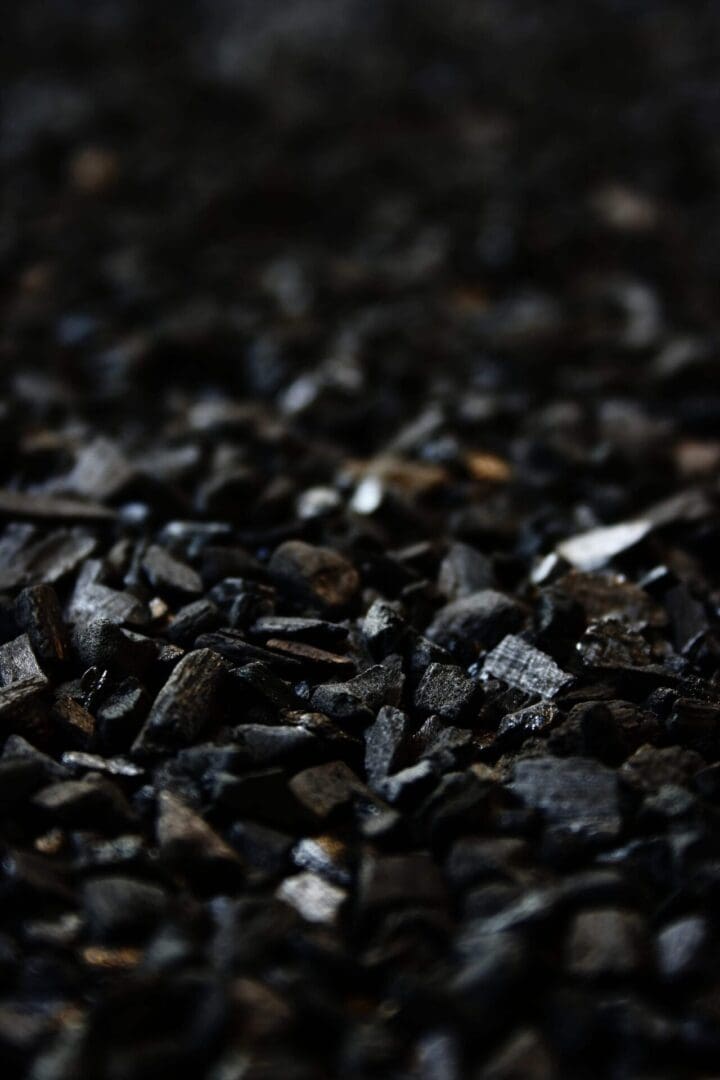
Clove essential oil is known for its calming and soothing properties. It is often used in aromatherapy to promote relaxation and reduce stress. When it comes to skincare, Cove essential oil can be beneficial as well. It has anti-inflammatory properties that can help calm irritated skin and reduce redness. It also has antiseptic properties, which can help prevent acne and other skin infections.. It’s always a good idea to do a patch test before using any new skincare product or essential oil to ensure you don't have an allergic reaction.
Cocoa is a versatile ingredient that can be used in skincare in various forms. Here are some ways cocoa can be incorporated into your skincare routine:
1. Cocoa Butter: Cocoa butter is a rich and creamy fat extracted from cocoa beans. It is commonly used as a moisturizer in skincare products such as lotions, creams, and body butters. Cocoa butter helps to hydrate and nourish the skin, leaving it soft and supple. It is especially beneficial for dry or sensitive skin.
2. Cocoa Powder: Cocoa powder is derived from roasted cocoa beans and is known for its antioxidant properties. Uses face masks, scrubs, and bath products. Cocoa powder helps to improve the overall appearance of the skin, promoting a healthy and radiant complexion.
3. Chocolate Face Masks: Chocolate face masks are a popular choice for skincare enthusiasts. These masks often contain cocoa powder along with other ingredients like honey, yogurt, or clay. Chocolate face masks can help to hydrate the skin, reduce inflammation, and provide a natural glow.
4. Chocolate Body Treatments: Spas and beauty centers offer chocolate-based body treatments such as wraps or massages. These treatments involve applying a mixture of cocoa powder, oils, and other ingredients to the body. They are believed to moisturize the skin, improve circulation, and provide relaxation.
5. Chocolate Lip Balms: Cocoa butter is a common ingredient in lip balms and lip care products. It helps to nourish and protect the delicate skin of the lips, keeping them soft and hydrated. Look for lip balms that contain cocoa butter for a sweet and moisturizing lip treatment.
When using cocoa-based skincare products it's important to ensure that you are using high-quality, pure cocoa. Be mindful of any allergies or sensitivities you may have and always perform a patch test before applying new products to your skin. Enjoy the indulgent and beneficial properties of cocoa in your skincare routine!
Coconut oil has gained popularity in skincare due to its various benefits. It is rich in fatty acids, which help moisturize and nourish the skin. Coconut oil also has antimicrobial properties that can help fight bacteria and fungi, making it beneficial for treating acne and other skin infections. Additionally, it can help reduce inflammation and soothe irritated skin. However, it's important to note that coconut oil can be comedogenic, meaning it may clog pores for some individuals. Therefore, it's best to patch test before using it on the face and to use it sparingly or as part of a skincare routine that suits your skin type.
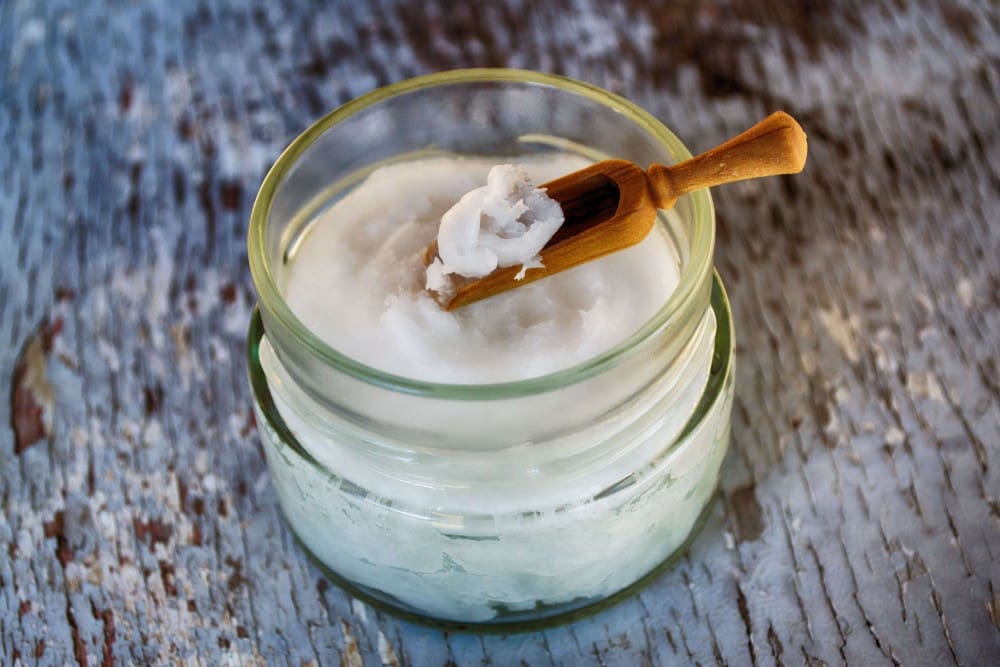
Coenzyme Q10, also known as CoQ10, is a naturally occurring molecule found in our skin cells. It plays a vital role in cellular energy production and acts as a powerful antioxidant. In skincare, CoQ10 is commonly used for its potential benefits in reducing the signs of aging and promoting overall skin health.
Here are some key benefits of Coenzyme Q10 in skincare:
1. Antioxidant Protection: CoQ10 helps neutralize harmful free radicals, which can damage the skin cells and accelerate aging. By reducing oxidative stress, it helps protect the skin from environmental aggressors like pollution and UV radiation.
2. Collagen Production: CoQ10 stimulates the production of collagen, a protein responsible for maintaining skin elasticity and firmness. As we age, collagen levels naturally decline, leading to the formation of wrinkles and sagging skin. By promoting collagen synthesis, CoQ10 can help improve the appearance of fine lines and wrinkles.
3. Skin Repair: CoQ10 has been shown to enhance the skin's ability to repair and regenerate itself. It aids in the synthesis of DNA and promotes cell turnover, which can help fade scars, hyperpigmentation, and promote a more even skin tone.
4. Moisture Retention: CoQ10 has moisturizing properties that help the skin retain moisture, resulting in a plumper and more hydrated complexion. This can be especially beneficial for individuals with dry or dehydrated skin.
5. Anti-Inflammatory Effects: CoQ10 has anti-inflammatory properties that can help soothe and calm irritated or inflamed skin. It may be beneficial for individuals with sensitive or acne-prone skin conditions.
When using skincare products with Coenzyme Q10, it is important to choose products that contain a stable and bioavailable form of CoQ10 to ensure optimal absorption and effectiveness.
Coffee berry extract is a popular ingredient in skincare products due to its potential benefits for the skin. It is derived from the coffee fruit, which is the berry that surrounds the coffee bean. Here are some potential benefits of coffee berry extract in skincare:
1. Antioxidant properties: Coffee berry extract is rich in antioxidants, such as chlorogenic acid and caffeic acid, which can help protect the skin from damage caused by free radicals. Free radicals can contribute to premature aging and the development of wrinkles.
2. Anti-inflammatory effects: Coffee berry extract contains anti-inflammatory compounds that can help calm and soothe the skin. This can be beneficial for individuals with sensitive or irritated skin.
3. Skin brightening: Coffee berry extract has been shown to have skin brightening properties, which can help even out the skin tone and reduce the appearance of dark spots or hyperpigmentation.
Colloidal silver is a suspension of silver particles in a liquid. It has been used for various purposes, including skincare. Some people believe that colloidal silver has antimicrobial and anti-inflammatory properties, making it potentially beneficial for treating certain skin conditions.
When used in skincare products, colloidal silver is primarily promoted for its antibacterial properties. It is thought to help kill bacteria on the skin's surface, which can be beneficial for acne-prone or problematic skin. Additionally, colloidal silver may have a soothing effect on the skin and help reduce inflammation.
Cranberry fruit extract is a popular ingredient in skincare products due to its numerous benefits for the skin. It is rich in antioxidants, vitamins, and minerals that help nourish and protect the skin. Here are some of the key benefits of cranberry fruit extract in skincare:
1. Antioxidant Protection: Cranberry fruit extract contains powerful antioxidants, such as vitamin C and polyphenols, which help to neutralize free radicals and protect the skin from oxidative stress. This can help prevent premature aging and improve the overall appearance of the skin.
2. Moisturizing and Hydrating: Cranberry fruit extract has hydrating properties that help to moisturize the skin and improve its texture. It can help to retain moisture and prevent dryness, leaving the skin soft and supple.
3. Anti-Inflammatory Properties: Cranberry fruit extract has anti-inflammatory properties that can help calm and soothe the skin. It can be beneficial for people with sensitive or irritated skin, as it can help reduce redness and inflammation.
4. Brightening and Even-Toning: The natural acids present in cranberry fruit extract, such as alpha hydroxy acids (AHAs), can help exfoliate the skin and promote cell turnover. This can result in a brighter and more even-toned complexion.
5. Anti-Acne Benefits: Cranberry fruit extract has antibacterial properties that can help combat acne-causing bacteria. It can also help to unclog pores and reduce the appearance of blemishes.

Evening primrose oil is a popular ingredient in skincare products due to its potential benefits for the skin. It is derived from the seeds of the evening primrose plant and is rich in essential fatty acids, including gamma-linolenic acid (GLA).
When applied topically, evening primrose oil may help moisturize the skin, improve skin elasticity, and reduce inflammation. It is often used in skincare products targeted at dry or sensitive skin, as well as conditions like eczema and psoriasis.
Frankincense oil has been used for centuries in skincare due to its numerous benefits. It has anti-inflammatory and antibacterial properties that can help reduce acne and inflammation on the skin. Frankincense oil also has rejuvenating properties that can help improve the appearance of aging skin, reducing the appearance of wrinkles and fine lines. Additionally, it can help balance the production of sebum, making it suitable for both dry and oily skin types. It's always recommended to do a patch test first to ensure you don't have any allergic reactions.

Fuller's earth clay is a popular ingredient in skincare due to its numerous benefits. This natural clay is rich in minerals like magnesium, calcium, and silica, which make it beneficial for the skin. Here are some ways Fuller's earth clay can be used in skincare:
1. Exfoliation: Fuller's earth clay has exfoliating properties that help remove dead skin cells, unclog pores, and reveal a smoother complexion.
2. Oil absorption: It is known for its ability to absorb excess oil from the skin, making it a great ingredient for those with oily or acne-prone skin.
3. Deep cleansing: Fuller's earth clay has the ability to draw out impurities and toxins from the skin, helping to detoxify and purify the complexion.
4. Skin tightening: This clay has a tightening effect on the skin, which helps to minimize the appearance of pores and improve the overall firmness of the skin.
5. Soothing properties: Fuller's earth clay has a cooling and soothing effect on the skin, making it beneficial for those with irritated or inflamed skin conditions.
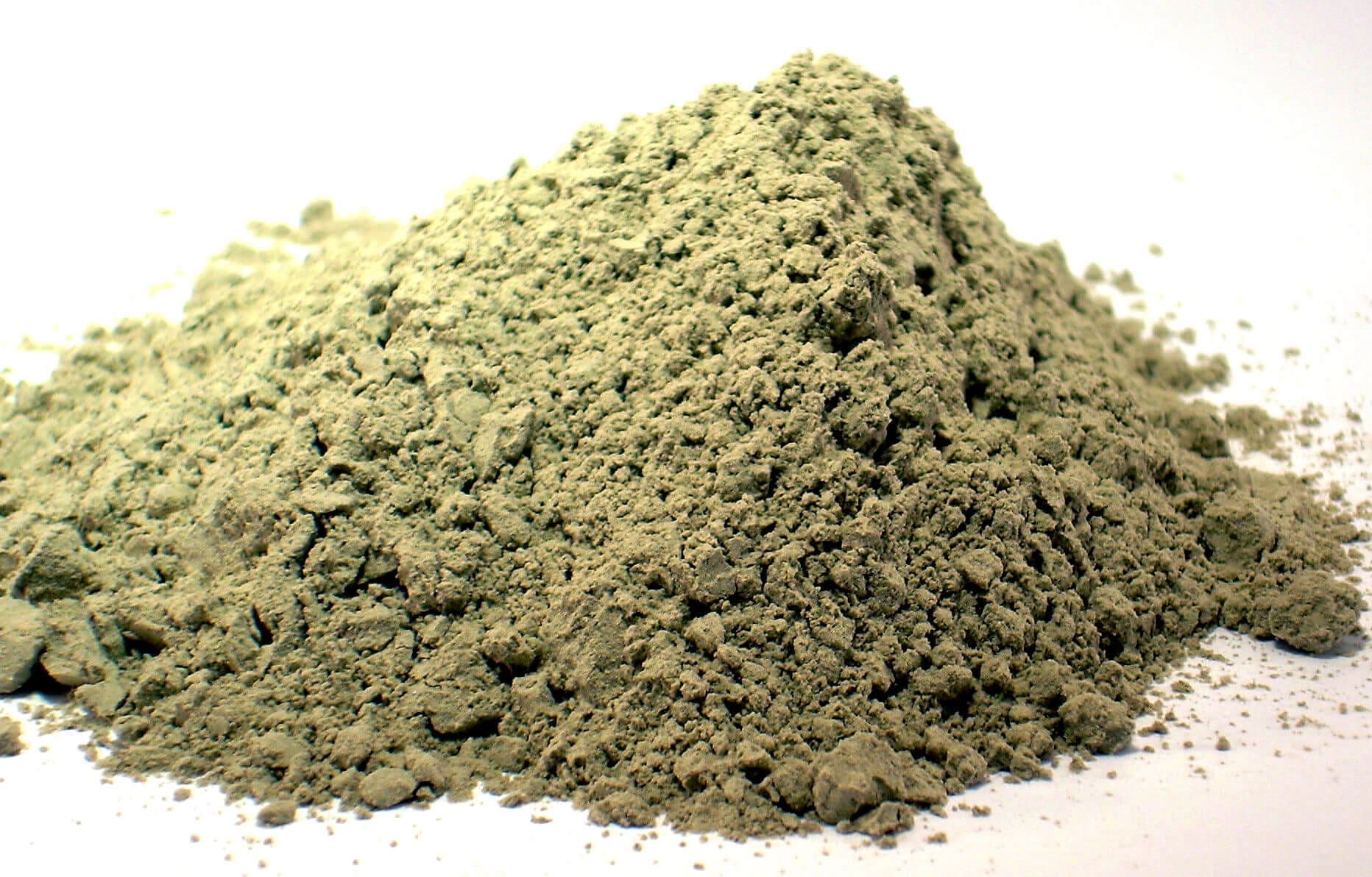
Geranium rose oil is a popular ingredient in skincare products due to its numerous benefits for the skin.
1. Moisturizing: Geranium rose oil has hydrating properties that can help to moisturize the skin, making it softer and smoother.
2. Balancing oil production: This oil is known for its ability to balance the production of sebum, the skin's natural oil. It can help to regulate oiliness and prevent clogged pores.
3. Anti-inflammatory: Geranium rose oil has anti-inflammatory properties that can help to reduce redness, inflammation, and irritation on the skin. It is especially beneficial for people with sensitive or acne-prone skin.
4. Antioxidant protection: The oil contains antioxidants that can help to protect the skin from environmental damage caused by free radicals. This can help to prevent premature aging and maintain a youthful appearance.
5. Healing properties: Geranium rose oil has healing properties that can help to promote skin cell regeneration and repair damaged skin. It can be beneficial for treating scars, blemishes, and other skin imperfections.

Ginger is a versatile ingredient that is not only used in cooking but also in skin care. Its natural properties make it beneficial for the skin in several ways.
1. Anti-Aging: Ginger contains antioxidants that help protect the skin from free radicals, which can cause premature aging. It also improves the elasticity of the skin, reducing the appearance of fine lines and wrinkles.
2. Skin Brightening: Ginger has skin-brightening properties that can help even out the skin tone and reduce the appearance of hyperpigmentation and dark spots. It stimulates blood circulation, resulting in a healthier and more radiant complexion.
3. Acne Treatment: Ginger has anti-inflammatory and antibacterial properties that can help reduce inflammation and kill bacteria, making it effective in treating acne. It can also help fade acne scars and blemishes.
4. Soothing Irritation: Ginger has soothing properties that can help calm irritated skin. It can be beneficial for conditions like eczema, psoriasis, and rosacea, providing relief from itching and redness.
5. Exfoliation: Ginger can be used as a natural exfoliant to remove dead skin cells and unclog pores. It helps promote cell turnover, leaving the skin smoother and brighter.

Glycerin is a common ingredient in skincare products due to its moisturizing properties. It is a humectant, meaning it attracts moisture from the environment and helps to retain it in the skin. Glycerin helps to hydrate the skin, making it feel soft and supple. It also forms a protective barrier on the skin, preventing moisture loss and keeping the skin moisturized for longer periods. Glycerin is suitable for all skin types and is often found in moisturizers, serums, cleansers, and other skincare products.
Goji berries are packed with antioxidants and essential nutrients that can benefit the skin. They help to protect the skin from environmental damage and promote a youthful appearance. Incorporating goji berry extract or oil in skincare products can provide hydration, improve skin elasticity, and reduce the appearance of wrinkles. It can also help to brighten the complexion and even out skin tone. Overall, goji berries are a great addition to skincare routines for their nourishing and rejuvenating properties.
Grape seed oil is commonly used in skincare due to its many benefits. It is lightweight and non-greasy, making it suitable for all skin types, including oily and acne-prone skin. Grape seed oil is rich in antioxidants, such as vitamin E and polyphenols, which help protect the skin from free radicals and environmental damage. It also has moisturizing properties that can help hydrate the skin and improve its elasticity. Additionally, grape seed oil contains linoleic acid, which can help soothe and calm irritated skin. Overall, incorporating grape seed oil into your skincare routine can help nourish, protect, and improve the overall appearance of your skin.
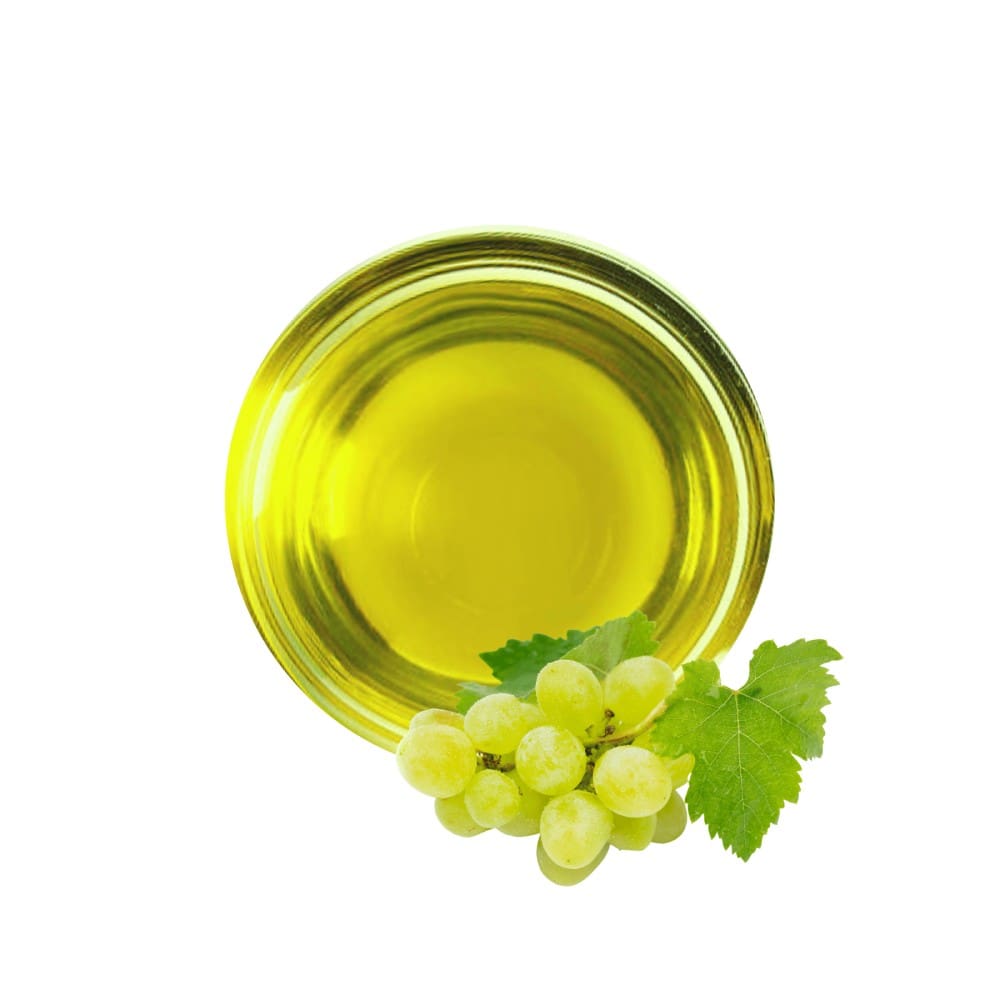
Grapefruit oil has several properties that make it commonly used in skincare:
1. Antioxidant: Grapefruit oil is rich in antioxidants, which help protect the skin from free radicals and environmental damage.
2. Astringent: It has astringent properties that can help tighten and tone the skin, reducing the appearance of pores and promoting a smoother complexion.
3. Antibacterial: Grapefruit oil contains antibacterial properties that can help fight against acne-causing bacteria and promote clearer skin.
4. Brightening: It has natural brightening properties that can help even out skin tone and enhance the skin's natural radiance.
5. Refreshing: The invigorating scent of grapefruit oil can help uplift the mood and provide a refreshing sensation to the skin.
Overall, these properties make grapefruit oil a popular choice in skincare products for its ability to promote healthy, radiant skin.

Green tea has long been recognized for its numerous health benefits, including its positive effects on skin health. When it comes to skincare, green tea can be used in various ways to promote a clear, radiant complexion. Here are some ways in which green tea can benefit your skin:
1. Antioxidant Protection: Green tea is rich in antioxidants, such as catechins, which help protect the skin from damage caused by free radicals. Free radicals can lead to premature aging and skin damage. By incorporating green tea into your skincare routine, you can help combat the effects of oxidative stress on your skin.
2. Anti-Inflammatory Properties: Green tea contains anti-inflammatory compounds that can help soothe and calm irritated skin. It may be especially beneficial for those with sensitive or acne-prone skin, as it can help reduce redness and inflammation.
3. Acne Treatment: The antibacterial properties of green tea make it an effective natural remedy for acne. It can help kill the bacteria that contribute to acne breakouts and reduce sebum production. Applying green tea topically or using skincare products containing green tea extract can help improve acne-prone skin.
4. UV Protection: Green tea has been found to have some photoprotective properties. While it cannot replace sunscreen, using skincare products containing green tea extract can provide an additional layer of protection against harmful UV rays.
5. Anti-Aging Benefits: The antioxidants in green tea can help reduce the appearance of fine lines, wrinkles, and other signs of aging. Regular use of green tea-based skincare products can help improve skin elasticity and firmness.
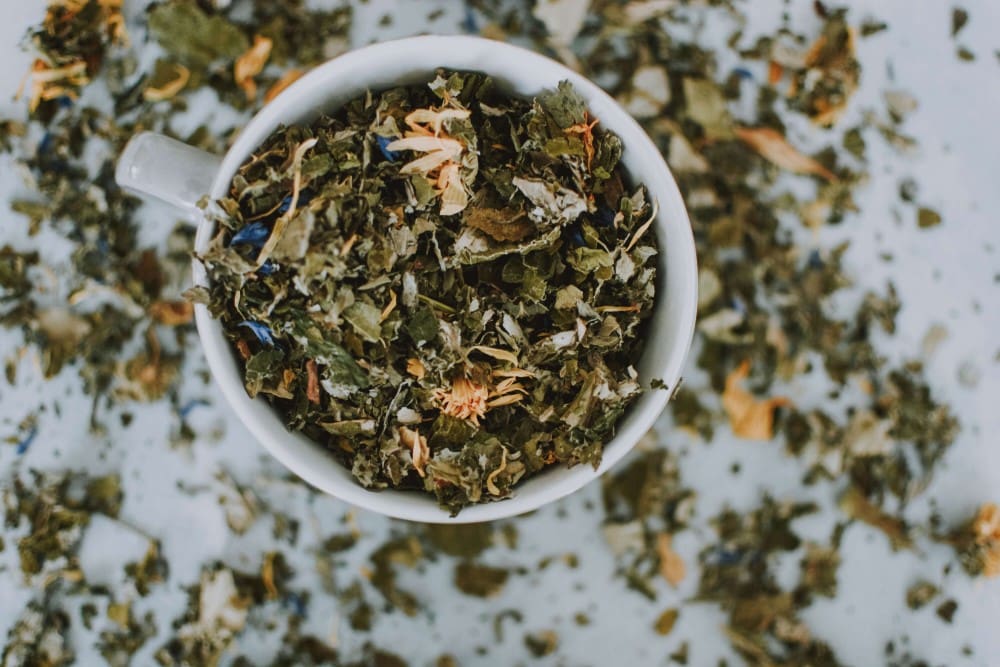
Gotu Kola, also known as Centella asiatica, is a herb commonly used in skincare products. It has various benefits for the skin, including its ability to promote collagen production, improve skin elasticity, and reduce inflammation. Gota Kola is also known for its antioxidant properties, which help protect the skin from free radicals and environmental damage. Additionally, it can aid in wound healing and improve the overall appearance of the skin.
Helichrysum oil has several beneficial properties for skincare:
1. Anti-inflammatory: Helichrysum oil contains compounds that have anti-inflammatory properties. This can help reduce redness, swelling, and irritation on the skin.
2. Antioxidant: The oil is rich in antioxidants, which help protect the skin from damage caused by free radicals. This can help prevent premature aging and maintain a more youthful appearance.
3. Skin regenerative: Helichrysum oil promotes cell regeneration, which can help repair damaged skin and improve overall skin health.
4. Antibacterial and antifungal: The oil has natural antibacterial and antifungal properties, which can help combat acne-causing bacteria and prevent infections on the skin.
5. Moisturizing: Helichrysum oil has moisturizing properties, helping to hydrate the skin and improve its texture.
Overall, the combination of these properties makes Helichrysum oil beneficial for various skincare concerns, including soothing irritated skin, reducing inflammation, promoting a more youthful appearance, and maintaining overall skin health.

Honey is a natural ingredient that has been used in skincare for centuries. It is known for its moisturizing and soothing properties, making it a popular choice for skincare products. Honey is rich in antioxidants, which help to protect the skin from damage caused by free radicals. It also has antibacterial properties, making it effective in treating acne and other skin infections. Additionally, honey can help to exfoliate the skin, removing dead cells and promoting a smoother complexion. Overall, honey can be a beneficial addition to your skincare routine, whether used on its own or as an ingredient in skincare products.

Hyaluronic acid is a popular ingredient in skincare products due to its moisturizing and anti-aging properties. It is a natural substance found in the skin that helps retain moisture, keeping it plump and hydrated. When applied topically, hyaluronic acid can help improve skin elasticity, reduce the appearance of fine lines and wrinkles, and promote a smoother and more youthful complexion. It is suitable for all skin types and is often found in serums, moisturizers, and face masks.
Jasmine oil is a popular ingredient in skincare products due to its numerous benefits for the skin. It is derived from the flowers of the jasmine plant and has a sweet and floral scent. Here are some ways jasmine oil can be beneficial for skincare:
1. Moisturizing: Jasmine oil is known for its moisturizing properties. It helps to hydrate the skin and lock in moisture, making it a great choice for dry or dehydrated skin.
2. Anti-aging: Jasmine oil contains antioxidants that help to protect the skin from damage caused by free radicals. It can help to reduce the appearance of fine lines and wrinkles, promoting a more youthful-looking complexion.
3. Even skin tone: Jasmine oil has skin brightening properties and can help to even out the skin tone. It can fade dark spots, hyperpigmentation, and acne scars, giving the skin a more radiant and even appearance.
4. Soothing and calming: Jasmine oil has a calming and soothing effect on the skin. It can help to reduce redness, inflammation, and irritation, making it beneficial for sensitive or irritated skin.
5. Antiseptic properties: Jasmine oil has antiseptic properties that can help to prevent infections and promote healing of wounds or blemishes on the skin.
It is also recommended to do a patch test before using jasmine oil on the face to check for any potential allergic reactions.

Using jojoba oil in skincare can provide several benefits. Here are some of them:
1. Moisturizing: Jojoba oil is similar to the natural oils produced by our skin, making it an effective moisturizer. It helps to lock in moisture and keep the skin hydrated.
2. Balancing sebum production: Jojoba oil helps regulate the production of sebum, the skin's natural oil. It can be beneficial for both oily and dry skin types, as it helps balance the skin's oiliness without clogging the pores.
3. Anti-inflammatory properties: Jojoba oil has anti-inflammatory properties that can help calm and soothe irritated skin. It can be beneficial for conditions like eczema, psoriasis, and acne.
4. Non-comedogenic: Jojoba oil is non-comedogenic, which means it doesn't clog pores. This makes it suitable for all skin types, including acne-prone skin.
5. Antioxidant-rich: Jojoba oil contains antioxidants like vitamins E and B-complex, which help protect the skin from free radicals and environmental damage.
6. Anti-aging effects: The antioxidants in jojoba oil can help reduce the appearance of fine lines, wrinkles, and other signs of aging.
7. Gentle and hypoallergenic: Jojoba oil is gentle on the skin and rarely causes allergic reactions. It is well-tolerated by most people, even those with sensitive skin.
Overall, incorporating jojoba oil into your skincare routine can help nourish, moisturize, and improve the overall health and appearance of your skin.
Kaolin clay is a natural clay that is free from harsh chemicals and additives. It is generally safe for most people to use on their skin. It has a soothing effect on the skin, making it beneficial for sensitive and irritated skin types. It does not strip the skin of its natural oils, making it less likely to cause dryness or irritation. It can help to reduce redness, inflammation, and irritation.
Its detoxifying, exfoliating, and oil-absorbing properties, Kaolin clay has the ability to draw out impurities and toxins from the skin, helping to detoxify and purify the complexion.It gently exfoliates the skin, removing dead skin cells and promoting a smoother, brighter complexion.
It’s oil-absorbing properties, making it effective in controlling excess oil and shine on the skin. It can help to mattify the complexion and reduce the appearance of enlarged pores, making it great for cleansing and purifying the skin. Making is a popular ingredient in face masks and cleansers.
Overall, the combination of its detoxifying, exfoliating, oil-absorbing, soothing, and gentle properties makes Kaolin clay a versatile and beneficial ingredient for skincare.

Lemon essential oil has several benefits for skin care. It is known for its astringent properties, which can help tighten the skin and reduce excess oil production. Lemon oil is also rich in antioxidants, which can help protect the skin from free radicals and promote a youthful appearance.
When using lemon essential oil for skin care, it is important to dilute it properly before application. You can mix a few drops of lemon oil with a carrier oil like jojoba, almond, or coconut oil. This helps to prevent any potential skin irritation.
Lemon essential oil can be used in various ways for skin care. Here are a few suggestions:
1. Facial Toner: Mix a few drops of lemon oil with water or rose water and apply it to your face using a cotton pad. This can help to tighten the skin and reduce the appearance of pores.
2. Brightening Mask: Mix a few drops of lemon oil with a tablespoon of honey and apply it to your face. Leave it on for about 15 minutes before rinsing off. This mask can help to brighten the skin and improve its overall appearance.
3. Spot Treatment: Dilute a drop of lemon oil with a carrier oil and apply it directly to acne spots or blemishes. Lemon oil's antibacterial properties can help to reduce inflammation and promote healing.
Remember to do a patch test before using lemon essential oil on your skin, especially if you have sensitive skin. If you experience any irritation or discomfort, discontinue use.

Licorice oil is a popular ingredient in skincare due to its numerous benefits. It is derived from the root of the licorice plant and contains various compounds that can improve the health and appearance of the skin. Here are some of the ways licorice oil can be beneficial in skincare:
1. Brightening and Evening Skin Tone: Licorice oil contains a compound called glabridin, which has been found to inhibit the production of melanin in the skin. This can help to reduce the appearance of dark spots, hyperpigmentation, and uneven skin tone, resulting in a brighter complexion.
2. Anti-Inflammatory Properties: Licorice oil has anti-inflammatory properties that can help soothe and calm irritated skin. It can be beneficial for conditions such as acne, rosacea, and eczema, as it can help reduce redness, swelling, and itching.
3. Antioxidant Protection: Licorice oil is rich in antioxidants, which can help protect the skin from damage caused by free radicals. Free radicals are unstable molecules that can accelerate the aging process and contribute to the development of wrinkles and fine lines. By neutralizing free radicals, licorice oil can help keep the skin looking youthful and healthy.
4. Moisturizing and Hydrating: Licorice oil has moisturizing properties that can help hydrate the skin and improve its overall texture. It can help to lock in moisture, making the skin feel soft and supple.
5. Anti-Aging Effects: Licorice oil can stimulate collagen production in the skin, which is essential for maintaining its elasticity and firmness. This can help reduce the appearance of wrinkles and fine lines, promoting a more youthful-looking complexion.
As with any new skincare product, it's always a good idea to do a patch test before using it on your face to check for any potential allergic reactions.



Magnesium is considered essential for maintaining healthy skin due to its numerous benefits and functions within the body. Here are some reasons why magnesium is believed to be important for skin health:
1. Cell Regeneration: Magnesium is involved in the process of cell regeneration, which is crucial for maintaining a youthful and healthy complexion. It helps in the production of new skin cells, promoting skin renewal and repair.
2. Anti-Inflammatory Properties: Magnesium possesses anti-inflammatory properties, which can help calm and soothe the skin. It may reduce redness, irritation, and inflammation associated with skin conditions such as acne, eczema, and rosacea.
3. Hydration and Moisture Retention: Magnesium helps to maintain the skin's moisture balance by assisting in the production of lipids, which act as a natural barrier to lock in moisture. This can help prevent dryness and maintain hydrated and plump skin.
4. Antioxidant Activity: Magnesium acts as an antioxidant, protecting the skin from oxidative stress caused by free radicals. This can help prevent premature aging, fine lines, and wrinkles, keeping the skin looking youthful and radiant.
5. Collagen Production: Magnesium is involved in the synthesis of collagen, a protein that provides structure and elasticity to the skin. Adequate collagen production helps to maintain the skin's firmness and prevent sagging or wrinkling.
Meadowfoam oil is a natural oil derived from the seeds of the meadowfoam plant (Limnanthes alba). It is known for its moisturizing and conditioning properties, making it a popular ingredient in skincare products. Meadowfoam oil is rich in antioxidants and fatty acids, which help to nourish and protect the skin. It has similarities to jojoba oil, meadow foam seed oil is slightly waxy and closely resembles human sebum. This special composition help skin to form a barrier to lock in moisture and deliver nutrient deep into you epidermis
It is often used in moisturizers, lip balms, hair conditioners, and massage oils. Additionally, meadowfoam oil has a long shelf life, making it a stable and sustainable choice for product formulations.
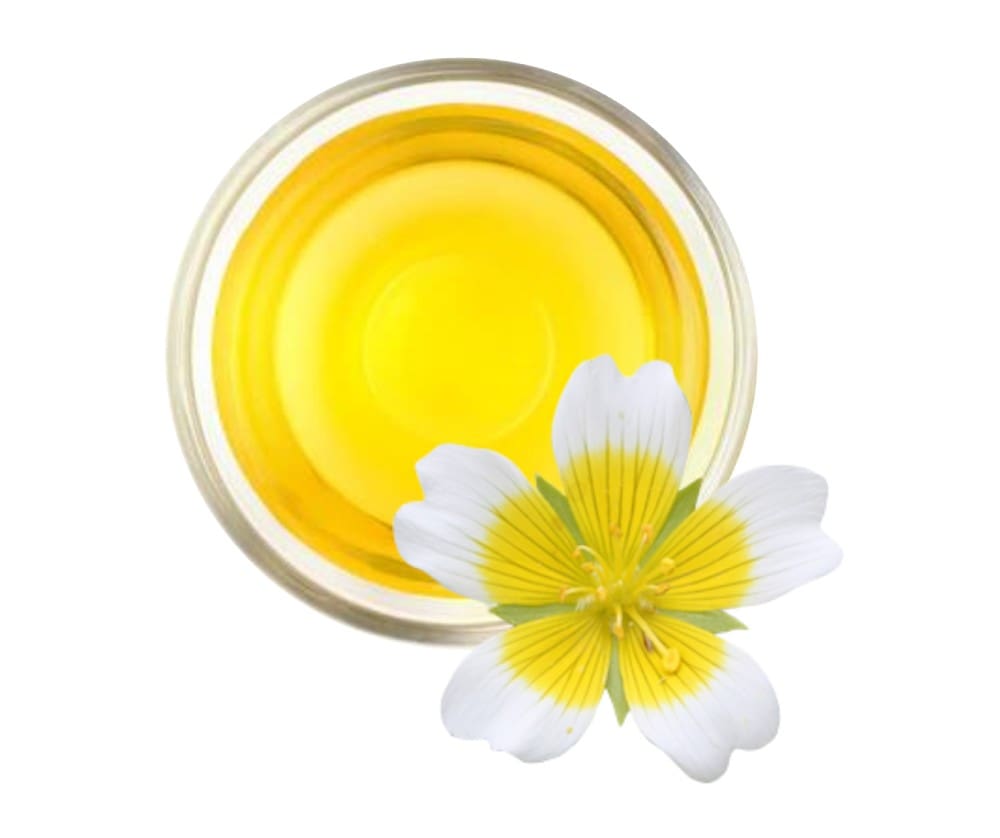
Moringa oil is extracted from the seeds of the Moringa oleifera tree.
It has been used for centuries in traditional medicine and skincare due to its numerous health and beauty benefits.
It is rich in antioxidants, vitamins, and fatty acids that help nourish and hydrate the skin. The oil has anti-inflammatory properties, which can help sooth and calm the skin, reduce redness and irritation. It helps protect the skin from environmental damage and premature aging caused by free radicals. With its moisturizing benefits, makes it suitable for dry or dehydrated skin. Additionally, moringa oil is known for its antimicrobial properties, which can help combat acne-causing bacteria and promote a clearer complexion. It can also assist in reducing the appearance of scars and blemishes.
It is lightweight and easily absorbed into the skin, making it suitable for all skin types. Moringa oil helps to hydrate and nourish the skin, leaving it soft, supple, and radiant.
Lorem Ipsum is simply dummied text of the printing and typesetting industry.
Myrrh oil is derived from the resin of the Commiphora myrrh tree, which is native to parts of the middle East and Africa. It has ben used for centuries in traditional medicine and has a rich history in ancient cultures.The resin is extracted from the tree and then steam distilled to produce the essential oil.
Myrrh oil has a warm, rich, and slightly balsamic scent. Its color can very from pale yellow to amber or even dark brown, depending on the specific extraction method and age of the resin. Myrrh oil is believed to have numerous therapeutic properties. Its commonly used in aromatherapy to promote feelings of relaxation, calmness, and spiritual grounding. It is also thought to have antimicrobial, anti-inflammatory and antioxidant properties.
Myrrh oil is often used in skincare products due to its potential benefits for the skin. It may help promote healthy skin by reducing the appearance of wrinkles, soothing dryness, and improving overall complexion.
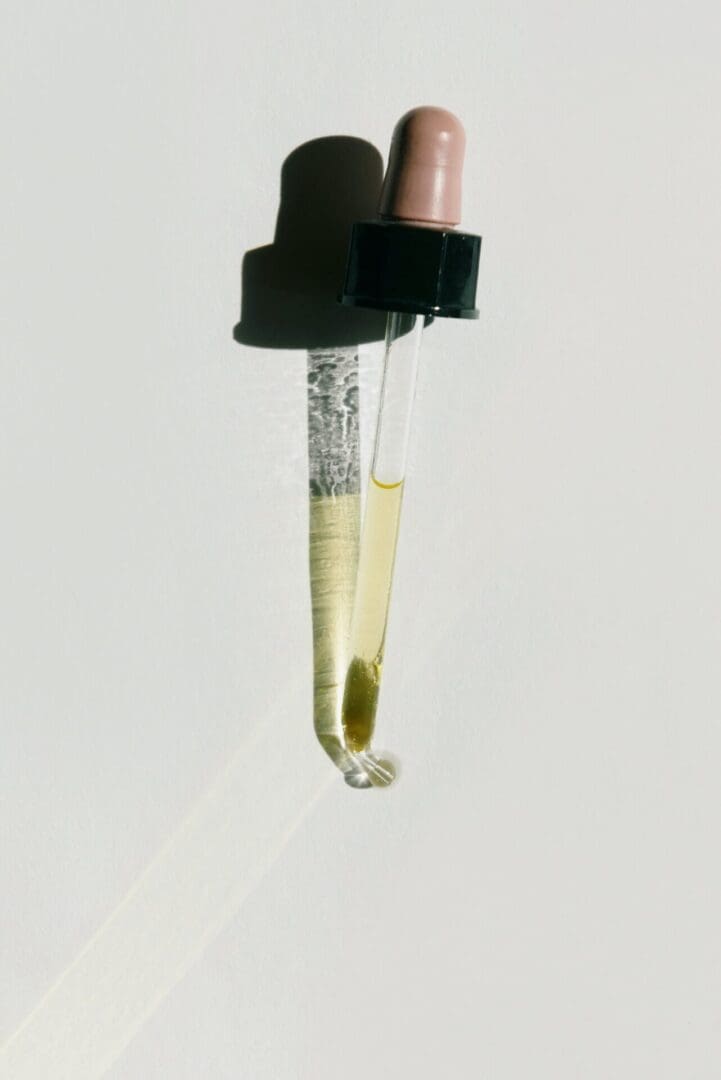
Neroli is a graceful-aging superhero that protects and preserves skin’s youthfulness, while ensuring its longevity. It’s also revered for its potential to rejuvenate and regenerate the skin from scar tissue. This is likely due to its cytophylactic actions, meaning neroli essential oil promotes the regeneration of new cells, while invigoration current skin cells.
Neroli benefits for every skin type, but is antibacterial, anti-inflammatory and antiseptic properties make it a star for oily and blemished skin. It helps to maintain moisture level and balance oily skin and also has the ability to prevent infection and reduce irritation in skin damaged by acne or trauma. It works by inhibiting the growth of pathogens. Since most pathogens excrete metabolic wastes, neroli can help protect the from further harm caused by toxicity.


Niacinamide is a popular ingredient used in skincare products. It is a form of vitamin B3 and offers several benefits for the skin.
Niacinamide helps strengthen the skin's protective barrier, which can prevent moisture loss and protect against environmental damage.
It has anti-inflammatory properties that can help calm redness and irritation in the skin, making it suitable for sensitive or acne-prone skin.
Niacinamide can help regulate sebum production and tighten pores, leading to a smoother and more even skin texture.It can help reduce the appearance of dark spots, hyperpigmentation, and dullness, resulting in a more radiant complexion.
Niacinamide stimulates the production of collagen and ceramides, which are essential for maintaining the skin's elasticity and firmness.It has been found to have some protective effects against UV damage, although it should not replace the use of sunscreen.
Overall, niacinamide is a versatile ingredient that can benefit various skin types and concerns. It is often found in serums, moisturizers, and other skincare products. As with any new skincare ingredient, it's always recommended to do a patch test before incorporating it into your routine.
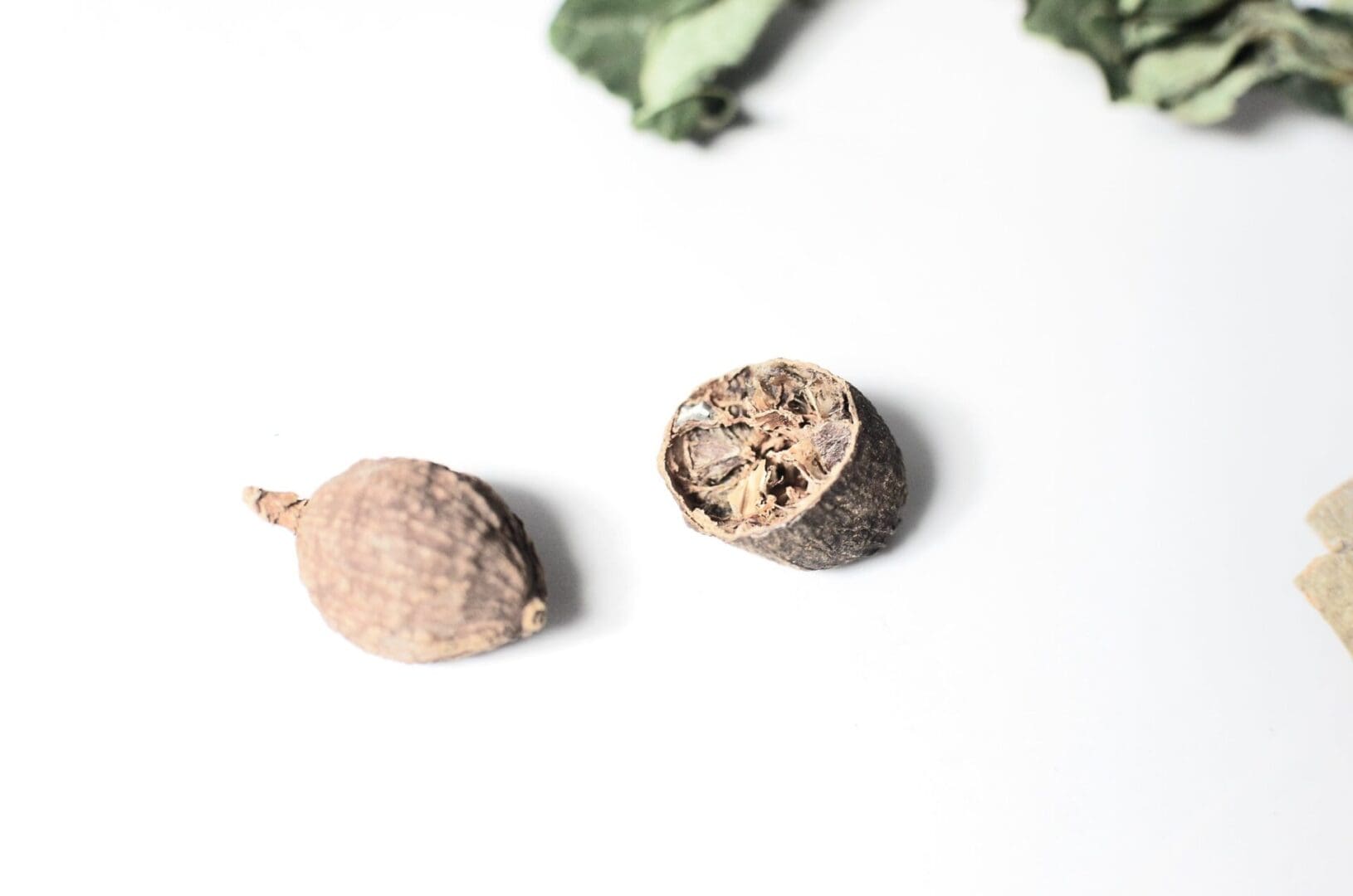
Nutmeg is a popular spice that has been used in skincare for centuries. It has several beneficial properties that make it a valuable ingredient in skincare products. Nutmeg contains antibacterial properties that can help fight acne-causing bacteria and reduce inflammation. It also has exfoliating properties, which can remove dead skin cells and promote a smoother complexion. Additionally, nutmeg has antioxidant properties that can help protect the skin from damage caused by free radicals. Overall, incorporating nutmeg into your skincare routine can be beneficial for achieving healthier and clearer skin.
Oat protein is a beneficial ingredient commonly used in skincare products. It is derived from oats and has several potential benefits for the skin. Oat protein is rich in amino acids, which help to moisturize and nourish the skin. It also contains antioxidants that can protect the skin from damage caused by free radicals and environmental stressors. Additionally, oat protein has soothing and anti-inflammatory properties, making it suitable for sensitive or irritated skin. Skincare products formulated with oat protein can help improve skin hydration, reduce redness, and promote a healthy and radiant complexion.

Olive oil has been used in skincare for centuries and is known for its numerous benefits for the skin. It is rich in antioxidants, including vitamin E, which helps protect the skin from free radicals and environmental damage. Olive oil also contains fatty acids, such as oleic acid, which moisturize and nourish the skin, leaving it hydrated and smooth. It helps to replenish the skin's moisture barrier, making it an excellent ingredient for dry or dehydrated skin.Olive oil also has antimicrobial properties, making it good for acne-prone skin. Overall, its known for its anti-inflammatory properties, which can help soothe and calm irritated or inflamed skin conditions like eczema or psoriasis.Olive oil is rich in essential fatty acids, such as omega-3 and omega-6, which help nourish and strengthen the skin. It can improve the overall health and vitality of the skin.

Omega fatty acids are a type of polyunsaturated fat that are essential for the body's normal functioning.Omega fatty acids are used in skincare for their moisturizing properties, anti-inflammatory effects, ability to repair the skin barrier, anti-aging benefits, and promotion of skin elasticity and firmness.Omega fatty acids contribute to the overall health of the skin in several ways:
Omega-3 and Omega-6, have emollient properties that help to lock in moisture, keeping the skin hydrated and preventing dryness and flakiness.It has anti-inflammatory properties that help to calm and soothe irritated or inflamed skin. They can reduce redness, itching, and discomfort caused by conditions like eczema, psoriasis, and acne.
This helps to strengthen and repair the skin's natural barrier. They improve the integrity of the skin's outermost layer, preventing moisture loss and protecting against environmental stressors.There loaded with antioxidant properties that help to neutralize free radicals, which can cause premature aging and damage to the skin. They can reduce the appearance of fine lines, wrinkles, and age spots.they play a big role in the production of collagen and elastin, which are essential proteins for maintaining skin elasticity and firmness. They help to improve skin tone and texture, giving the skin a smoother and more plump appearance, promoting a more youthful and radiant complexion.
Overall, omega fatty acids play a crucial role in maintaining the overall health and appearance of the skin, providing essential nourishment, protection, and rejuvenation.
Sugar maple, also known as Acer Saccharum, is a tree native to North America. While it is primarily known for its sweet sap that is used to make maple syrup, sugar maple also has skincare benefits.
The sap of sugar maple contains natural alpha hydroxy acids (AHAs) such as malic acid and lactic acid. AHAs are known for their exfoliating properties and can help remove dead skin cells, unclog pores, and promote skin cell turnover. This can result in smoother, brighter, and healthier-looking skin.
In addition to its exfoliating properties, sugar maple sap also contains antioxidants, which can help protect the skin from environmental damage and premature aging. Antioxidants help neutralize free radicals, which are unstable molecules that can cause oxidative stress and damage to the skin.
Some skincare products may include sugar maple extract or sap as an ingredient to provide these exfoliating and antioxidant benefits. These products can range from facial cleansers and masks to serums and moisturizers. If you're considering incorporating sugar maple into your skincare routine, it's a good idea to patch test any new products

Plum kernel oil is a natural oil extracted from the kernels or seeds of plums. It is known for its moisturizing and nourishing properties, making it a popular ingredient in skincare products. Here are some benefits of plum kernel oil in skincare:
1. Moisturizes the skin: Plum kernel oil is rich in essential fatty acids, such as oleic and linoleic acid, which help to moisturize and hydrate the skin. It can be used to relieve dryness and improve the overall texture of the skin.
2. Anti-aging properties: The oil is packed with antioxidants, including vitamin E, which help to protect the skin from free radicals that can cause premature aging. It promotes collagen production, helping to reduce the appearance of fine lines and wrinkles.
3. Soothes and calms the skin: Plum kernel oil has anti-inflammatory properties that can help to soothe and calm irritated or sensitive skin. It can be beneficial for conditions such as eczema or rosacea.
4. Improves skin tone and texture: Regular use of plum kernel oil can help to improve the overall tone and texture of the skin. It can help to even out skin tone, reduce the appearance of blemishes, and promote a smoother complexion.
5. Enhances skin elasticity: The oil is lightweight and easily absorbed by the skin, making it an excellent choice for improving skin elasticity. It can help to firm and tighten the skin, giving it a more youthful appearance.
When using plum kernel oil in skincare, it is important to choose products that contain high-quality, cold-pressed oil to ensure maximum benefits. It can be used as a facial oil, added to moisturizers or serums, or even used as a hair and scalp treatment.
Pomegranate oil is a natural oil extracted from the seeds of the pomegranate fruit. It is rich in antioxidants and essential fatty acids, making it beneficial for the skin. It moisturizes, nourishes, and has anti-inflammatory properties. Pomegranate oil also promotes collagen production and protects the skin from free radicals, reducing signs of aging. It can be used in various skincare products and is suitable for all skin types.

Red Rhassoul clay, also known as Moroccan clay, is a natural clay that has been used for centuries in skincare rituals. It is primarily sourced from the Atlas Mountains in Morocco.
One of the main reasons why red Rhassoul clay is used in skin treatments is its ability to absorb impurities and detoxify the skin. It has a high mineral content, including silica, magnesium, calcium, and potassium, which help to draw out toxins, dirt, and excess oils from the skin, leaving it cleansed and refreshed.
In addition to its detoxifying properties, red Rhassoul clay also acts as a gentle exfoliant. It has fine particles that boasts a high negative charge that enables it to grow out blackheads, congestion, and other impurities from skin with ease without disrupting your natural oil balance. This is the ultimate spa clay and achieves results like none other.
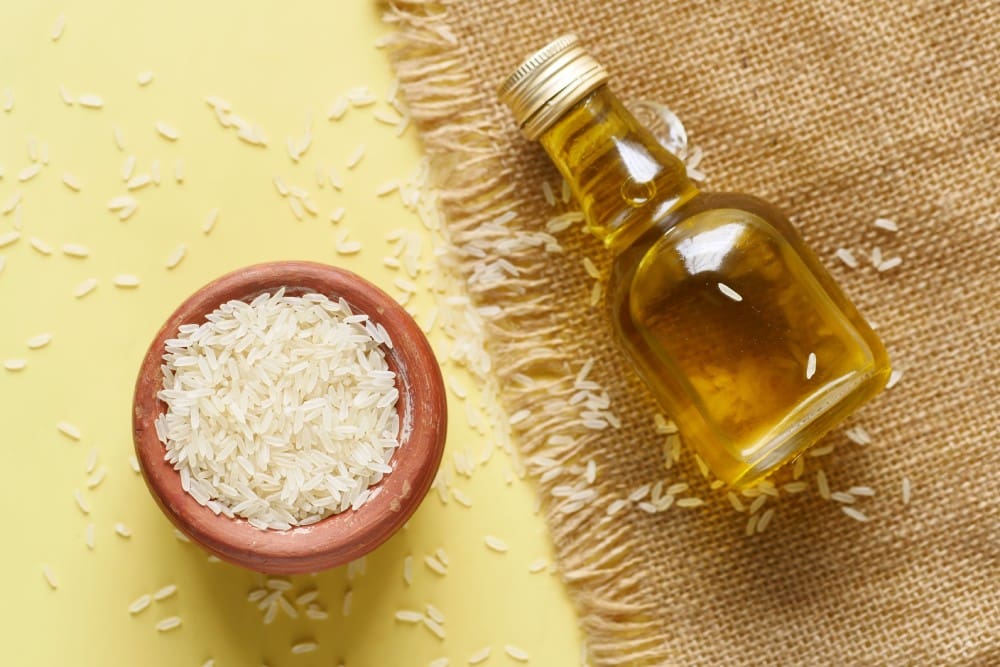
Rice bran oil is a versatile ingredient that is commonly used in skincare products. It is extracted from the outer layer of rice grains and is rich in antioxidants, vitamins, and fatty acids, making it beneficial for the skin. It moisturizes, has anti-aging properties, improves skin tone and texture, soothes sensitive skin, and enhances skin elasticity. It is suitable for all skin types.
Rosehip seed oil is a versatile ingredient commonly used in skincare for its numerous benefits. It is extracted from the seeds of wild rose bushes and is rich in essential fatty acids, antioxidants, and vitamins. Here are some ways rosehip seed oil is used in skincare:
1. Moisturizer: Rosehip seed oil is lightweight and easily absorbed by the skin, making it an excellent natural moisturizer. It helps to hydrate the skin and lock in moisture, keeping it soft and supple.
2. Anti-aging: The antioxidants in rosehip seed oil, such as vitamin C and vitamin A, promote collagen production and improve skin elasticity. This can help reduce the appearance of fine lines, wrinkles, and age spots, giving the skin a more youthful appearance.
3. Brightening: The high vitamin C content in rosehip seed oil helps to brighten the skin and even out the complexion. It can fade dark spots and hyperpigmentation, giving the skin a more radiant and glowing look.
4. Scar treatment: Rosehip seed oil is known for its ability to fade scars and improve the appearance of skin imperfections. It contains essential fatty acids, such as omega-3 and omega-6, which can help regenerate skin cells and reduce the visibility of scars, including acne scars.
5. Soothing and calming: Rosehip seed oil has anti-inflammatory properties that can help soothe and calm irritated or sensitive skin. It can reduce redness and inflammation, making it beneficial for conditions such as eczema, rosacea, and psoriasis.
Rosemary offers several benefits when used in skincare:
1. Antioxidant properties: Rosemary is rich in antioxidants, such as rosmarinic acid and carnosic acid, which help protect the skin from damage caused by free radicals. This can assist in preventing premature aging, reducing the appearance of fine lines and wrinkles, and maintaining a youthful complexion.
2. Anti-inflammatory effects: Rosemary contains anti-inflammatory compounds that can help calm and soothe irritated or inflamed skin. It can be beneficial for individuals with sensitive skin or those prone to conditions like acne, eczema, or rosacea.
3. Antibacterial and antiseptic properties: Rosemary has natural antibacterial and antiseptic properties, making it effective in combating acne-causing bacteria and preventing breakouts. It can help cleanse the skin, reduce excess oil production, and promote a clearer complexion.
4. Skin toning: When applied topically, rosemary can improve blood circulation, which can result in a more toned and radiant complexion. It helps stimulate the skin, giving it a refreshed and revitalized appearance.
5. Exfoliation: The coarse texture of dried rosemary leaves can be used as a natural exfoliant to gently remove dead skin cells and unclog pores. This helps promote a smoother and brighter complexion.
6. Aromatherapy benefits: The scent of rosemary is known to have mood-enhancing properties and can provide a sense of relaxation and mental clarity. Including rosemary essential oil in skincare products or using it in aromatherapy can offer both skincare benefits and a refreshing aromatic experience.
It's important to note that individual results may vary, and it's always recommended to do a patch test before using any new skincare ingredient to check for allergies or sensitivities. Consulting with a dermatologist or skincare professional can also provide personalized advice on incorporating rosemary into your skincare routine.
Safflower oil is highly moisturizing and helps to hydrate the skin. It contains essential fatty acids, such as linoleic acid, which help to maintain the skin's natural moisture barrier. This makes safflower oil beneficial for dry or dehydrated skin, as it can improve skin hydration and prevent moisture loss.
Safflower oil has a lightweight texture that allows it to absorb easily into the skin without leaving a greasy or heavy feeling. This makes it suitable for all skin types, including oily or acne-prone skin, as it doesn't clog pores or contribute to excess oiliness.
Safflower oil is rich in antioxidants, such as vitamin E, which help to protect the skin from free radical damage caused by environmental stressors like pollution and UV radiation. Antioxidants also have anti-aging benefits, as they can help reduce the appearance of fine lines, wrinkles, and other signs of skin aging.
Safflower oil has soothing and calming properties that can help alleviate skin irritation, redness, and inflammation. It can be beneficial for individuals with sensitive or easily irritated skin conditions like eczema or rosacea.
Safflower oil is considered non-comedogenic, which means it is unlikely to clog pores and cause acne breakouts. This makes it suitable for use in skincare products for acne-prone or congested skin.
Salicylic acid is a widely used ingredient in skincare products, particularly in those designed for treating acne and improving the overall appearance of the skin. Here are some of its key uses and benefits in skincare:
1. Acne Treatment: Salicylic acid is highly effective in treating acne and preventing breakouts. It penetrates deep into the pores, where it helps to unclog them by dissolving excess oil, dead skin cells, and other debris. This action helps to reduce the formation of blackheads, whiteheads, and blemishes, leading to clearer skin.
2. Exfoliation: Salicylic acid is a type of beta hydroxy acid (BHA) that has exfoliating properties. It gently exfoliates the skin by removing the outer layer of dead skin cells, revealing a smoother and brighter complexion. Regular exfoliation with salicylic acid can improve skin texture, minimize the appearance of pores, and promote a more even skin tone.
3. Oil Control: Salicylic acid is lipophilic, which means it has the ability to dissolve in oil. This property makes it effective in controlling excess oil production on the skin. By reducing oiliness, salicylic acid helps to prevent clogged pores and the formation of acne.
4. Anti-Inflammatory: Salicylic acid has anti-inflammatory properties that can help soothe and calm irritated skin. It can reduce redness and inflammation associated with acne breakouts, making it beneficial for individuals with sensitive or acne-prone skin.
5. Skin Brightening: Salicylic acid can help fade dark spots, hyperpigmentation, and post-inflammatory hyperpigmentation caused by acne. It inhibits the production of melanin, the pigment responsible for skin discoloration, leading to a more even and brighter complexion.
6. Anti-Aging Effects: Salicylic acid stimulates collagen production, which helps to reduce the appearance of fine lines and wrinkles. It also promotes cell turnover, allowing for the growth of new, healthy skin cells. These effects contribute to a smoother and more youthful-looking complexion.
When using skincare products containing salicylic acid, it's important to follow the instructions and start with a lower concentration to avoid potential irritation, especially for individuals with sensitive skin. It's also advisable to use sunscreen during the day, as salicylic acid can increase sun sensitivity.
Schisandra berries, also known as Schisandra chinensis, are small red berries native to East Asia. These berries have been used for centuries in traditional Chinese medicine for their various health benefits, including their potential benefits for skincare.
Schisandra berries are rich in antioxidants, which help protect the skin from free radicals and environmental damage. They contain a variety of vitamins, minerals, and phytochemicals that can nourish and revitalize the skin. These berries are also known for their adaptogenic properties, which means they can help the skin adapt to stress and maintain its balance.
When used in skincare products, Schisandra berries can help improve the overall appearance and health of the skin. They can help brighten the complexion, reduce the appearance of fine lines and wrinkles, and promote a more even skin tone. Schisandra berries are also believed to have anti-inflammatory properties, which can help soothe and calm irritated skin.
In addition to their topical benefits, Schisandra berries can also be consumed orally as a supplement or in the form of tea. Consuming these berries can provide internal benefits for the skin, such as improving skin hydration, reducing inflammation, and promoting a healthy complexion from within.
The history of the sea, whip extract, and skincare is an interesting one. The sea has long been a source of fascination and inspiration for humans throughout history. Its vastness, beauty, and abundance have captivated people for centuries.
In terms of skincare, the sea has played a significant role. Many ancient civilizations, such as the Egyptians, Greeks, and Romans, recognized the therapeutic properties of seawater and used it for various skincare purposes. They believed that the minerals and nutrients present in seawater could help improve the health and appearance of the skin.
Whip extract, also known as sea whip extract, is derived from a type of coral found in the Caribbean Sea. It has gained popularity in recent years for its anti-inflammatory and soothing properties. Whip extract is often used in skincare products to calm and reduce redness, making it beneficial for those with sensitive or irritated skin.
The combination of the sea and whip extract in skincare products has become increasingly popular in the beauty industry. Many brands now incorporate marine ingredients, such as seaweed, kelp, and algae, along with whip extract, to create effective and nourishing skincare formulations. These products aim to provide hydration, rejuvenation, and overall skin health.
Overall, the history of the sea, whip extract, and skincare is a testament to the enduring fascination with the ocean and the continued exploration of its potential benefits for our skin.
Sea buckthorn, also known as seaberry, is a plant that has been used for centuries in traditional medicine and skincare. Its history in skincare can be traced back to ancient times, particularly in Asia and Europe.
In traditional Chinese medicine, sea buckthorn has been used to treat various skin conditions, such as burns, wounds, and dryness. Its berries and oil are rich in vitamins, minerals, antioxidants, and essential fatty acids, making it a valuable ingredient for promoting skin health.
In ancient Greece, sea buckthorn was also recognized for its skincare benefits. The famous Greek physician Hippocrates mentioned the healing properties of sea buckthorn in his writings. It was used to treat various skin ailments and promote skin rejuvenation.
In recent years, sea buckthorn has gained popularity in the skincare industry due to its numerous benefits. It is known for its moisturizing and nourishing properties, making it ideal for dry and damaged skin. Sea buckthorn oil is often used in skincare products like moisturizers, serums, and facial oils to hydrate and soothe the skin.
Additionally, sea buckthorn is rich in antioxidants, which help protect the skin from free radicals and environmental damage. It also contains vitamins C and E, which are known for their anti-aging properties. These nutrients help promote collagen production, improve skin elasticity, and reduce the appearance of wrinkles and fine lines.
Furthermore, sea buckthorn has anti-inflammatory properties, making it beneficial for soothing irritated and sensitive skin. It can help calm redness, inflammation, and skin conditions like eczema and psoriasis.
Overall, the history of sea buckthorn in skincare dates back centuries, and its benefits are still recognized and utilized in modern skincare products. Its natural properties make it a valuable ingredient for promoting healthy, hydrated, and youthful-looking skin.

The use of seaweed in skin care products dates back centuries. Seaweed has been a staple in traditional medicine and beauty practices in various cultures around the world. In ancient Egypt, seaweed was used for its moisturizing and soothing properties. The ancient Greeks and Romans also recognized the benefits of seaweed for the skin and used it in their beauty rituals.
In Asian cultures, particularly in Japan and Korea, seaweed has been an integral part of skin care for centuries. The Japanese have long used seaweed for its hydrating and anti-inflammatory properties. Seaweed baths were a popular practice in coastal regions, as they were believed to detoxify and nourish the skin.
In modern times, the interest in seaweed and its potential benefits for skin care has grown. Scientists and researchers have conducted studies to explore the various compounds present in seaweed and their effects on the skin. This has led to the development of innovative skin care products that harness the power of seaweed extracts.
Today, seaweed is a common ingredient in a wide range of skin care products, including cleansers, masks, moisturizers, and serums. Its natural properties make it a popular choice for those looking for natural and sustainable skin care options.
Sesame Seed, Oil, natural goodness of sesame to provide nourishing and effective skincare solutions. Our sesame seeds are carefully selected and processed to create high-quality sesame seed oil, which is the key ingredient in our skincare products.
Sesame seed oil is rich in antioxidants, vitamins, and minerals that help to nourish and protect the skin. It has moisturizing properties that deeply hydrate the skin, leaving it soft, supple, and radiant. The oil also helps to improve skin elasticity, reduce inflammation, and promote a youthful appearance.
Our skincare range includes a variety of products infused with sesame seed oil, such as cleansers, moisturizers, serums, and masks. These products are designed to address different skin concerns, including dryness, dullness, and signs of aging. With regular use, they help to restore the skin's natural balance, improve its texture, and enhance its overall health and vitality.
Shea Butter is a skincare brand that specializes in products made with shea butter. Shea butter is a natural ingredient known for its moisturizing and nourishing properties. Shea Butter offers a range of skincare products such as body lotions, creams, lip balms, and soaps, all formulated with high-quality shea butter. These products are designed to hydrate, soften, and improve the overall health of your skin. Shea Butter skincare can be a great addition to your daily skincare routine to keep your skin smooth, supple, and healthy.

Sweet orange oil is a versatile and popular ingredient in skincare due to its numerous benefits. It is extracted from the peel of sweet oranges and offers a range of properties that can improve the health and appearance of your skin.
One of the key advantages of sweet orange oil is its high vitamin C content. Vitamin C is a powerful antioxidant that helps to protect the skin from environmental damage, such as UV rays and pollution. It also promotes collagen production, which can help to improve the elasticity and firmness of the skin.
Sweet orange oil is also known for its antiseptic and antibacterial properties. This makes it effective in treating acne and preventing breakouts. It can help to control excess oil production and reduce inflammation, resulting in clearer and healthier-looking skin.
Furthermore, sweet orange oil has a brightening effect on the skin. It can help to fade dark spots, hyperpigmentation, and uneven skin tone. Regular use of sweet orange oil can lead to a more even complexion and a radiant glow.
In conclusion, sweet orange oil is a beneficial ingredient in skincare due to its antioxidant, antibacterial, and brightening properties. It can help to protect and improve the health of your skin, giving you a youthful and radiant appearance.
Lorem Ipsum is simply dummied text of the printing and typesetting industry.
Turmeric is a popular ingredient in skincare due to its numerous benefits for the skin. It has anti-inflammatory and antioxidant properties that can help reduce inflammation, calm skin conditions like acne and eczema, and protect the skin from environmental damage. Turmeric also has brightening properties that can help fade dark spots and even out the skin tone. Additionally, it can help stimulate circulation and promote a healthy glow. Many skincare products include turmeric as an ingredient, such as face masks, serums, and creams. It is important to note that turmeric may temporarily stain the skin, so it's recommended to do a patch test before using it on your face.
VANILLA Vanilla is a popular ingredient used in skincare products due to its soothing and calming properties. It is known for its antioxidant properties, which help protect the skin from environmental stressors and premature aging. Vanilla also has anti-inflammatory properties, which can help soothe and calm irritated skin. Additionally, the sweet and comforting scent of vanilla can provide relaxation and aromatherapy benefits. Overall, vanilla is a great addition to skincare products for its nourishing and aromatic qualities.
Vitamin E is a powerful antioxidant that is commonly used in skincare products. It helps to protect the skin from free radicals, which are unstable molecules that can cause damage to the skin cells. Vitamin E also has moisturizing properties, helping to hydrate the skin and improve its overall texture. Additionally, it can help to reduce inflammation and promote healing, making it beneficial for conditions such as acne, scars, and sunburns. Overall, incorporating Vitamin E into your skincare routine can help nourish and protect your skin.
White tea is a popular ingredient in skincare products due to its numerous benefits for the skin. It is derived from the leaves of the Camellia sinensis plant, just like green tea and black tea, but it undergoes minimal processing, which helps retain its high concentration of antioxidants and other beneficial compounds.
White tea is rich in antioxidants, such as catechins and polyphenols, which protect the skin from free radicals and environmental damage. These antioxidants help to neutralize the harmful effects of pollution, UV radiation, and other external factors, reducing the signs of aging and promoting a youthful complexion.The high concentration of antioxidants in white tea helps to combat the signs of aging, such as fine lines, wrinkles, and sagging skin. It promotes collagen production and improves skin elasticity, leading to firmer and more youthful-looking skin.The antioxidants present in white tea can help brighten the skin and even out the complexion. Regular use of white tea-based skincare products can result in a more radiant and glowing skin tone.
The anti-inflammatory properties of white tea can help soothe and calm irritated skin. It may be beneficial for conditions such as acne, rosacea, and eczema, as it can reduce redness and inflammation.
White tea contains natural moisturizing properties that can help improve skin hydration and prevent dryness. It helps to maintain the skin's natural moisture barrier, keeping it soft and supple.
Remember to patch test any new skincare product before applying it to your entire face, especially if you have sensitive skin.
Sent from my iPhone
White Willow bark offers a natural alternative to synthetic ingredients often found in skincare products for oily skin. It is gentle on the skin and less likely to cause irritation or dryness compared to harsher ingredients.
White Willow bark contains tannins, which are natural astringents that help to tighten and shrink the pores. This can help reduce excess oil production and control shine on the skin. It contains salicylic acid, a beta-hydroxy acid (BHA) that is known for its exfoliating properties. Salicylic acid helps to remove dead skin cells and unclog pores, preventing the buildup of sebum and reducing the occurrence of acne breakouts.
Oily skin is often prone to inflammation and acne. The salicin compound found in White Willow bark has anti-inflammatory properties that can help calm and soothe irritated skin, reducing redness and swelling associated with acne.
Overall, White Willow bark can help regulate oil production, unclog pores, reduce inflammation, and promote a clearer complexion for those with oily skin.

